Two weeks is the perfect amount of time for your first trip to Japan.
You’ll be able to explore this wonderful country from the mountains to the sea, wandering through chaotic neon-lined streets and serene Zen temples, soaking in onsens and filling yourself with more ramen and sushi than you ever thought possible.
For your first visit in Japan, I recommend kicking things off in Tokyo (4 nights) before heading to Hakone (1 night), Yudanaka (1 night), Kanazawa (2 nights), Takayama (1 night), Kyoto (3 nights), Hiroshima (1 night), and Osaka (2 nights). You’ll experience a perfect blend of cities and nature, and leave craving a return visit to do it all over again.
Here’s how these destinations look on the map:
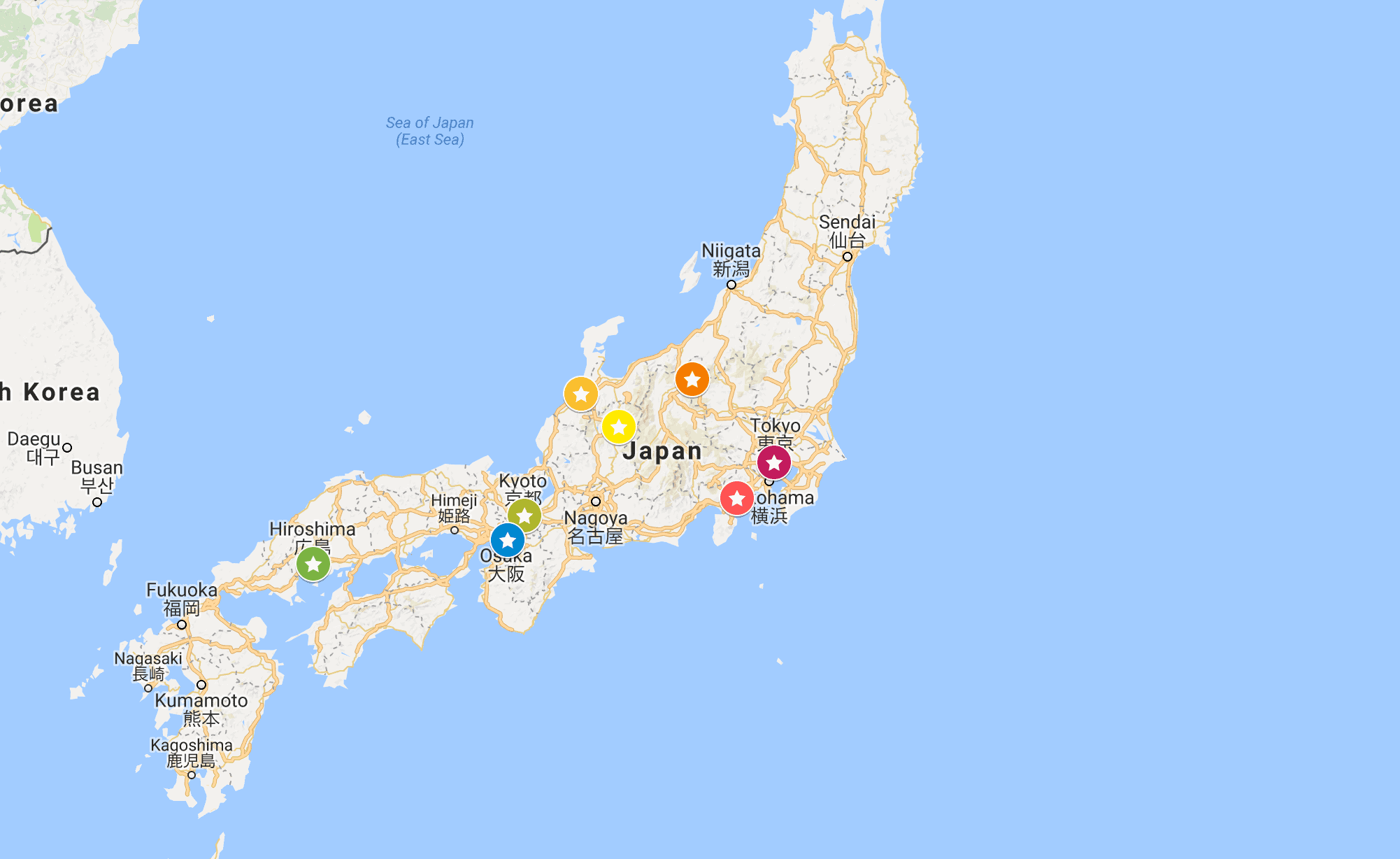
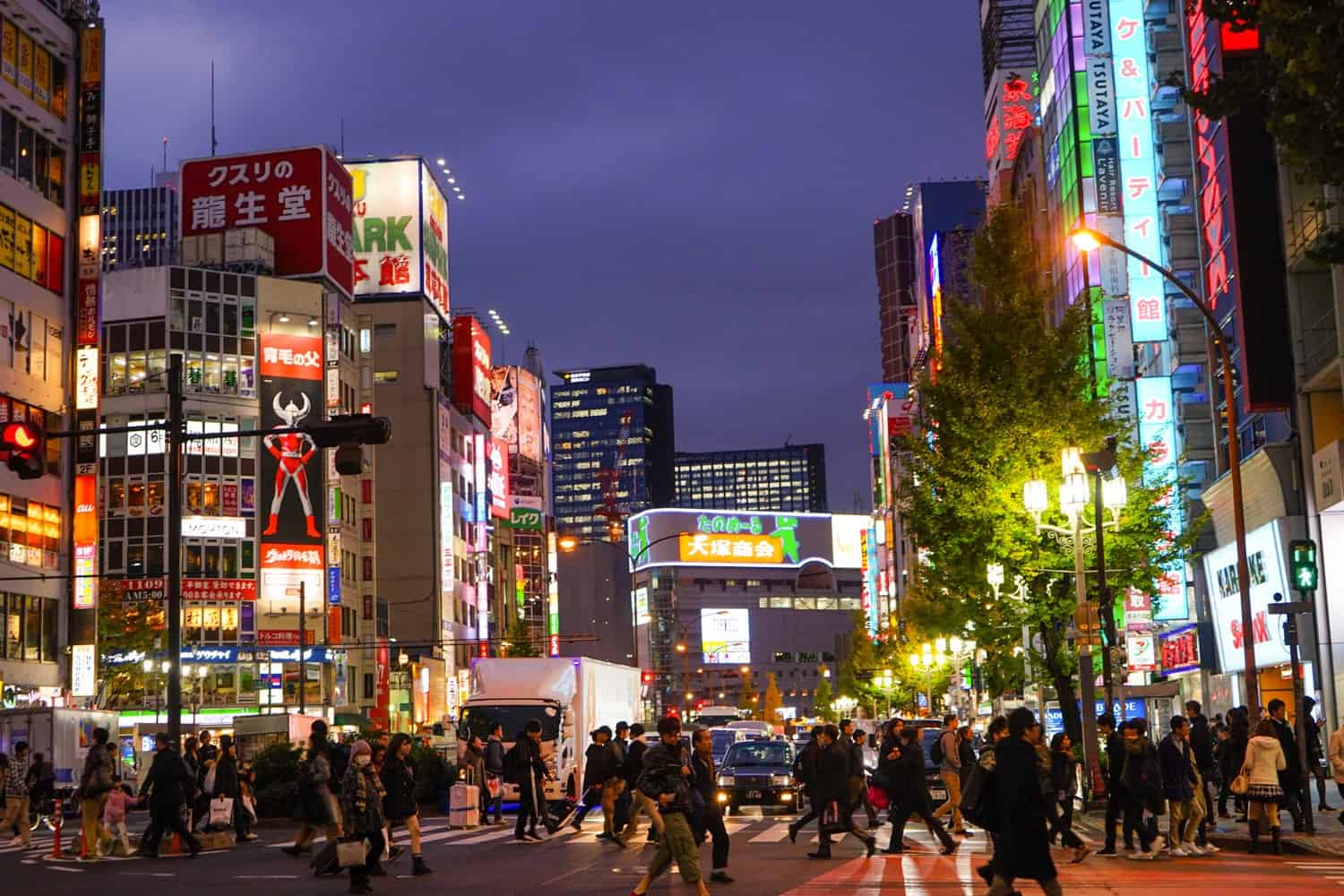
Day One: Arrive in Tokyo and Get Your Bearings
If you’ve come from afar, this is likely going to be a hectic day that passes in a haze of jet-lag. It’s best to take things easy on yourself during your first day in this chaotic city, and spend your time exploring the touristy parts of Shibuya
Make sure to walk across the iconic Shibuya Crossing on your first day, then head to the nearby Starbucks for a kickass view from above. Tower Records is fun to visit for a hefty dose of nostalgia, and if you discover you’ve forgotten to pack anything in your luggage, this is the perfect area for shopping. I may have spent this first day replacing my well-worn travel closet with Japanese versions.
Where to stay in Tokyo: It’s your first day in Japan! And so, it makes sense to really throw yourself into the local experience. That’s why we decided to stay at this lovely onsen-ryokan in Shinjuku. (Whenever readers ask me which neighbourhood to choose in Tokyo, I always recommend Shinjuku or Shibuya.) The reason why I loved this specific property, though, is because it’s a ryokan (traditional Japanese Inn) that also has an onsen (hot pool). It’s a great way to jump immediately into all things Japanese.
And it was wonderful; one of my favourite hotels in the country. The rooms were small and cosy, and felt super-traditional and calming. The views over Tokyo at night from the window were incredible. And the rooftop onsen? With free popsicles afterwards? So good. It’s located in a quieter neighbourhood, but still only a 10-minute walk to the subway. I really recommend this one!
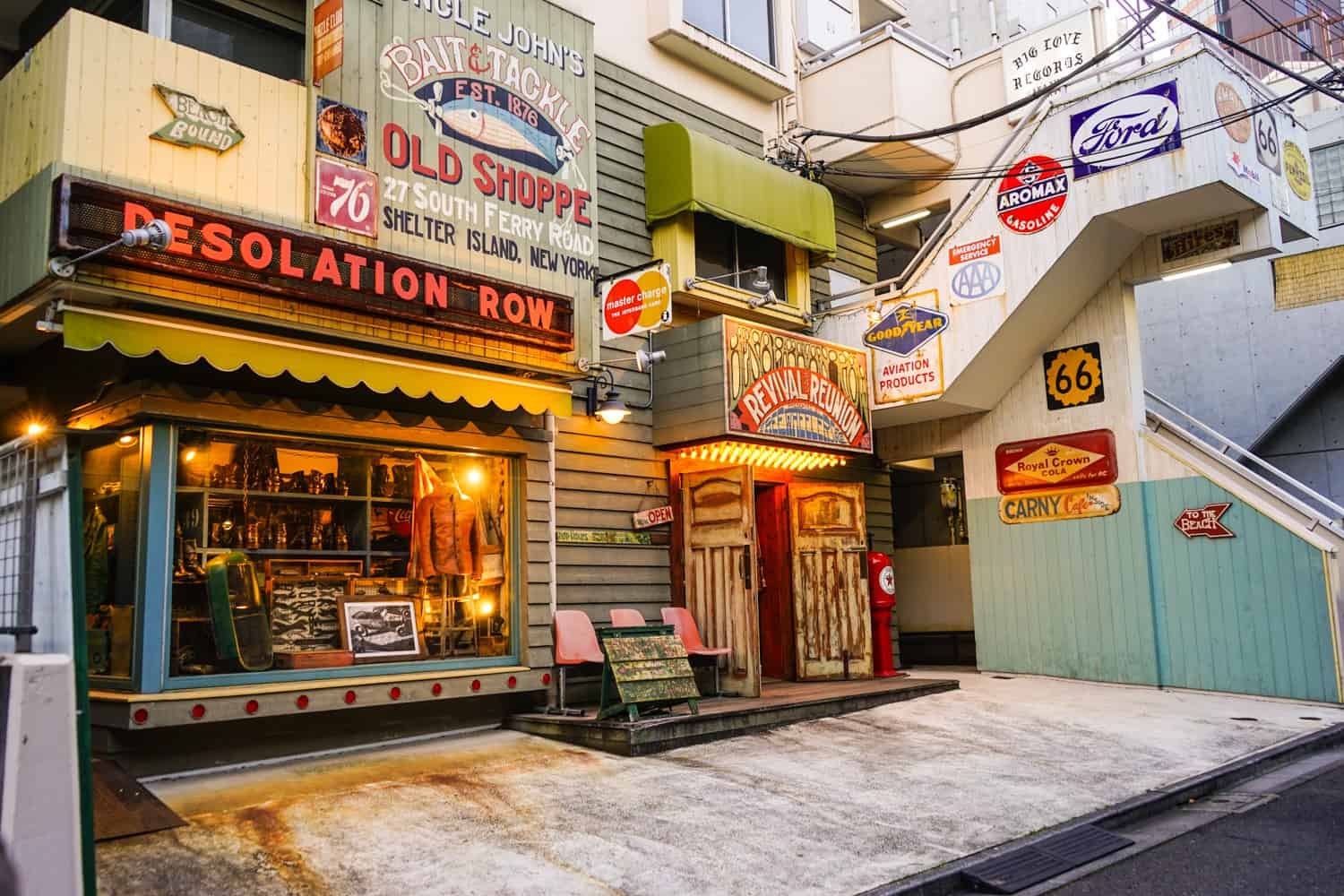
Day Two: Explore Harajuku and Shinjuku on Foot
Kick off your day with a hipster breakfast and latte in Harajuku. You’re going to adore this cool as hell neighbourhood, and want to spend an entire day cafe-hopping my way around the area. I recommend eating at Mr Farmer for a fun brunch, and loved Deus Ex Machina cafe for a morning caffeine kick.
There’s tons to do in Harajuku, so you’ll likely spend much of your second day in Tokyo walking, taking photos, and people-watching. I went to an ethically dubious hedgehog cafe, gawped at the unique fashion stores, fell in love with the Big Love Records store, and snacked on excellent gyozas at Gyoza Lou.
In late-afternoon, make your way back over to Shinjuku to head up to the top of the Tokyo Metropolitan Government Building. It offers one of the best free views in the city, and is worth visiting at sunset to watch the city slowly light up.
Round off your evening with one of my personal highlights from my time in Tokyo: yakitori and cold beer on Piss Alley, followed by bar-hopping around the charismatic Golden Gai bar district. This was so much fun!
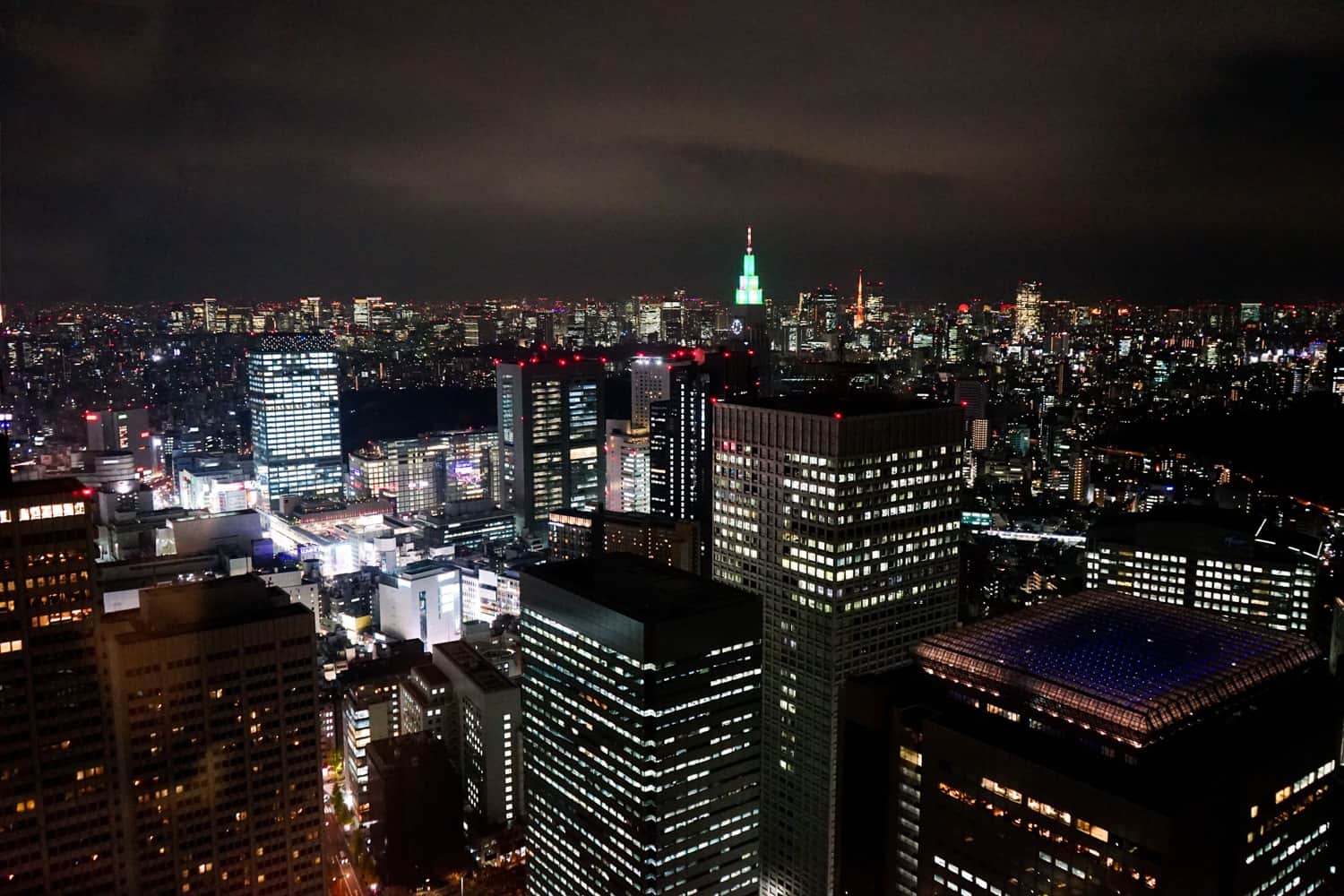
Day Three: Head Over to Central Tokyo
Start your day at Tokyo’s Imperial Palace, and spend your morning wandering around the grounds and gardens. This is a wonderful area of the city and you can easily spend several hours exploring, especially in the beautiful East Gardens.
After grabbing lunch, opt for a laid back afternoon walking the streets of high-end Ginza to see a different side of the city. Ginza may be known for its luxury shopping opportunities, but Ginza Crossing, Itōya Stationary Store, Hamarikyu Gardens are all free to see.
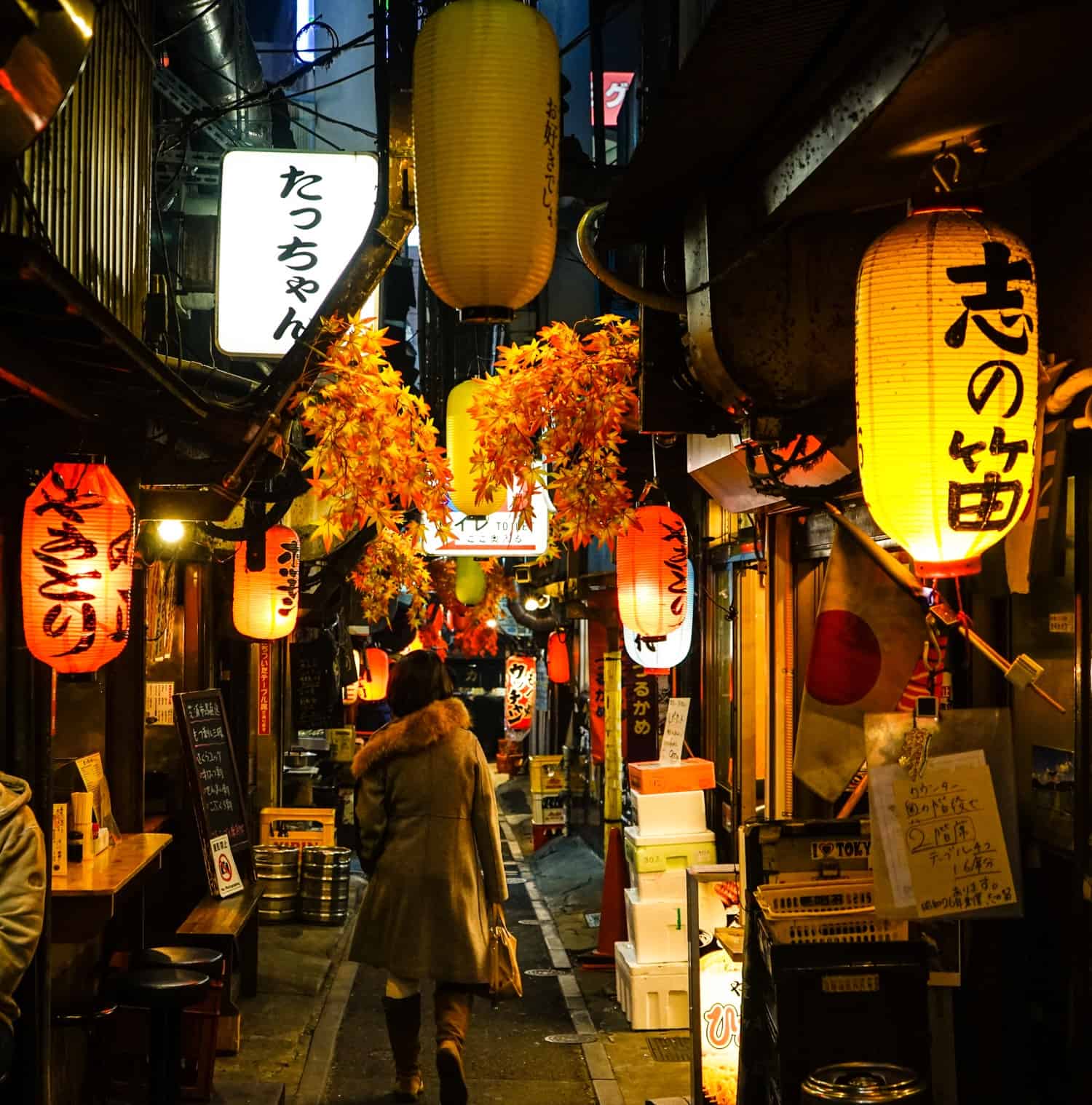
Day Four: Get Your Geek On in Akihabara
The jet lag should be wearing off by about now, so how about a hefty dose of culture shock?
Kick off your final morning in Tokyo by heading to Asakusa to check out the famous Senso-ji Temple. It’s one of the most photographed spots in the city, so you’ll want to get there early. Once the crowds start to arrive, wander over to Ueno Park to spend a couple of hours walking the trails and sitting on benches beside the pretty lake.
Akihabara used to be Tokyo’s electronics district and while you can still find plentiful technology stores there — Dave bought a new shaver there! — it’s now also the home of manga madness. In short, this neighbourhood is bright, noisy, and jam-packed with comic book stores. It’s the perfect place to spend an afternoon people-watching, experiencing culture shock, and pondering how it’s possible for so much neon to exist in one place.
There’s tons to do here: you could jump on an afternoon walking tour that takes you to all of the hidden gems and big-name anime-themed attractions in the neighbourhood. You could visit one of the infamous maid cafes, or you could hit up Super Potato to dive into the vintage gaming classics of the 80s and 90s; some of the games aren’t for sale anywhere else in the world! And if you want to go all in on the madness, you could sign up for a themed go-karting tour through the streets of Akihabara, dressed as a character from a Nintendo game. Yes, really.
This part of the city is exactly what you’re imagining when you think of Tokyo.
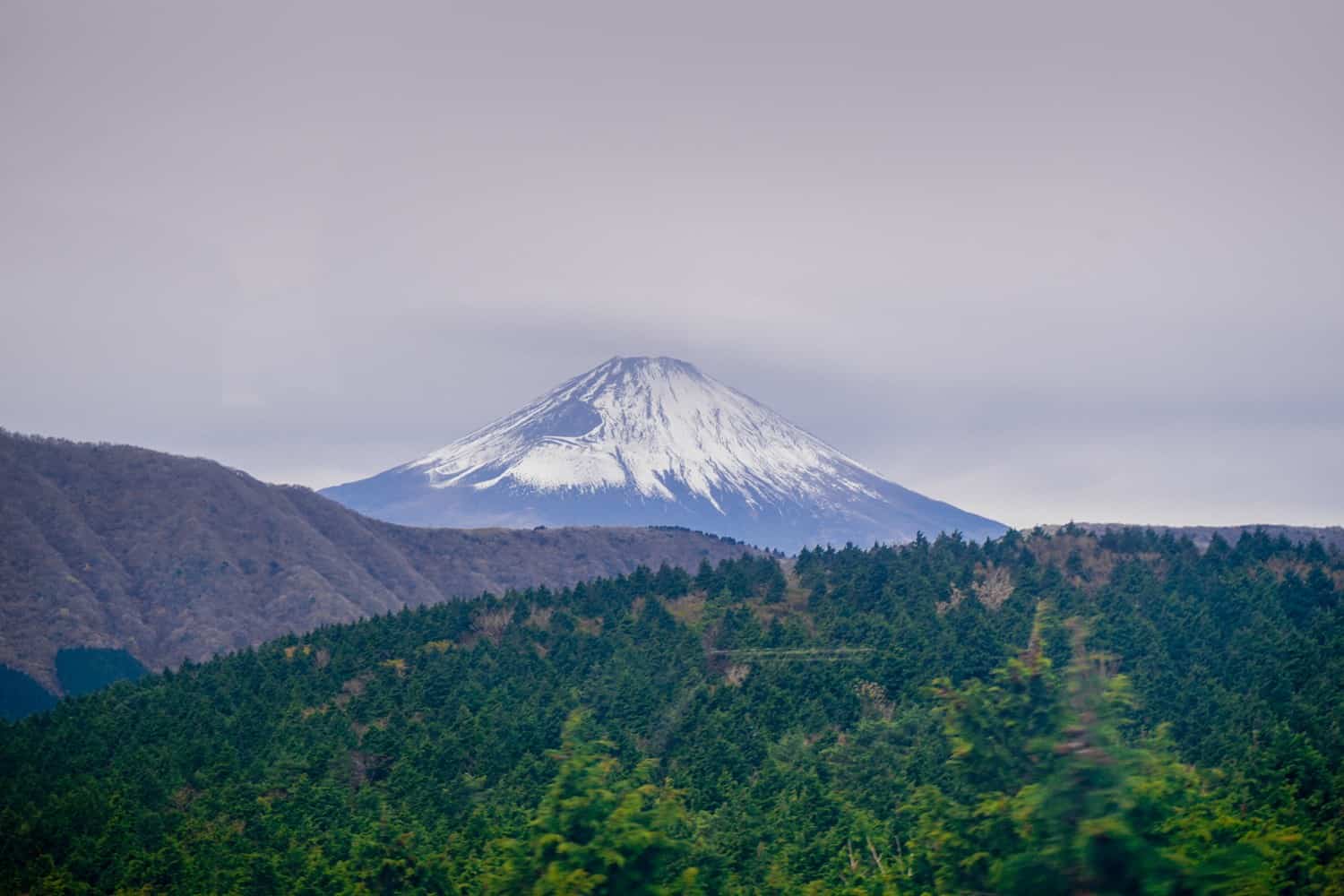
Day Five: Check Out Mount Fuji from Hakone
If seeing Mount Fuji is high on your wishlist, you’ll want to take a trip out to Hakone. I spent the night there in order to see as much as possible, but you could also do it as a day trip from Tokyo (there are day trip tours) if you’re short on time. Check availability for those day trips using the widget below:
If you’re aiming to climb this active volcano, keep in mind you can usually only do so between July and August, and also remember it’s rare to find yourself in front of Mount Fuji with bright blue skies. Prepare for clouds in the hopes of being surprised — December offers the best chances of seeing the mountain with pristine blue behind it.
The best and cheapest way to see Hakone is by purchasing the Hakone Free Pass, which gives you unlimited rides on all the transportation options over two days. You’ll start by taking the train from Hakone-Yumoto to Gora, then jumping on the cable car to Sounzen. From there, you’ll board a ropeway to Owakudani where you can check out the volcanic activity and sample some sulphuric eggs, and then continue on the ropeway to Togendai.
Next up: a pirate ship! Yes, really. You’ll be able to grab a ride on the boat that sails across Lake Ashi from Togendai to Hakone-machi, and then walk around the lake to Moto Hakone. From there, you’ll be able to jump on a bus to the starting point! It’s an easy circular journey that’ll expose you to pretty views of Mount Fuji and the surrounding area.
If you have extra time and love checking out quirky sights when you travel, head to Yunessun Spa Resort, which was my one big Hakone oversight. There, you’ll be able to bathe in hot pools filled with sake, coffee, red wine, and even ramen.
Where to stay in Hakone: We opted for a private room in a lovely guesthouse, with a tatami mat floor to sleep on and a private onsen on-site. It ended up being another one of our favourite stays in Japan! The staff were lovely and there was a restaurant/bar that served up surprisingly fantastic pizzas. It had a cosy and chilled-out atmosphere, with great food and wine, and lots of blankets to snuggle up with as we ate. It was also worth staying here just to experience the private onsen — we got to go in as a couple!
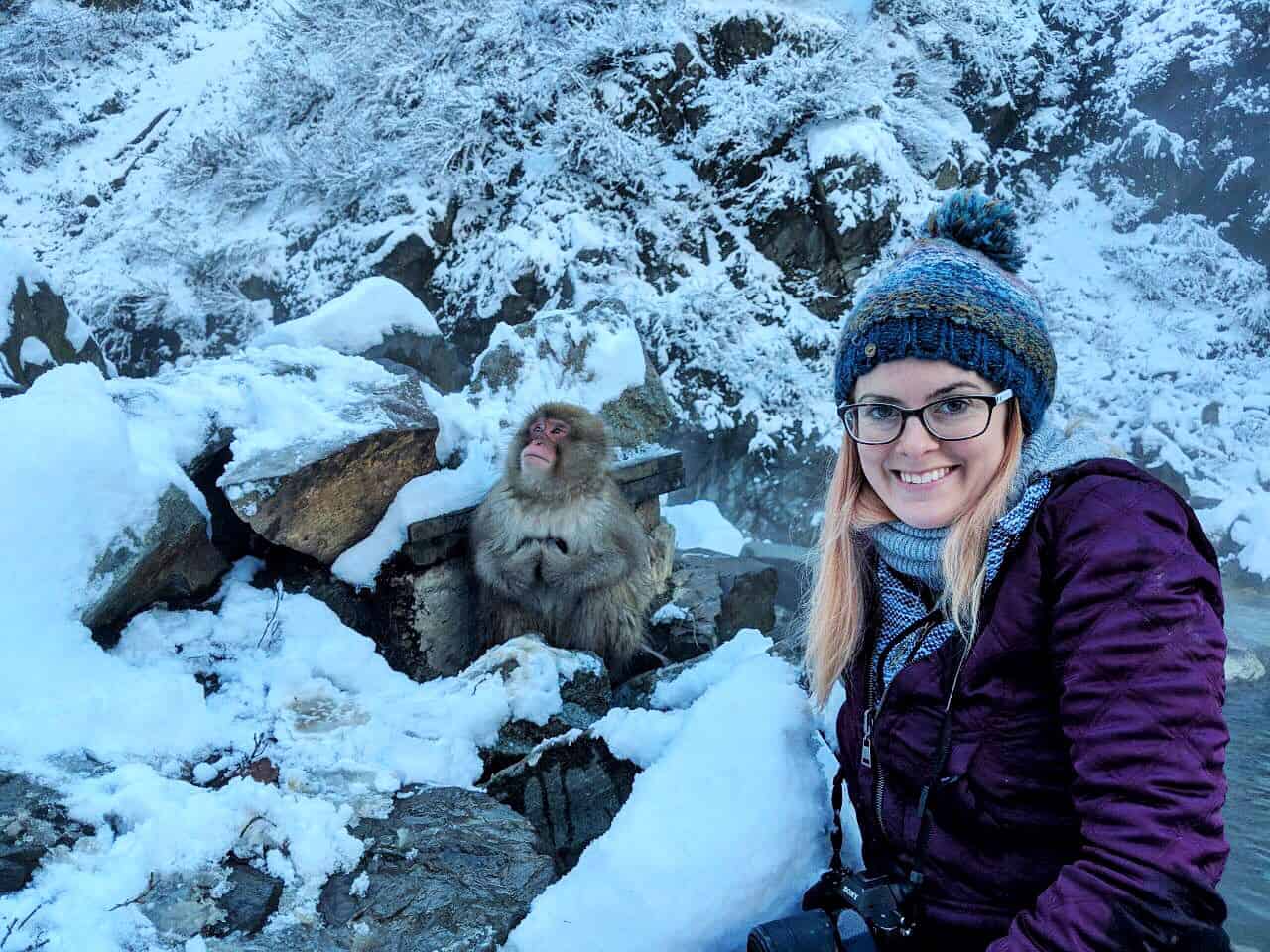
Day Six: See the Snow Monkeys in Yudanaka (Optional)
It makes little logical sense to head from Hakone all the way to Yudanaka, as it involves four trains, some with tight changes, and half a day of travel, but if it’s winter and you’ve always dreamed of seeing Japan’s famous snow monkeys, this might be worth the detour for you.
Just keep in mind that the experience isn’t as organic as it’s touted to be online, and felt a bit like a zoo to me. You can read my report from my time at Jigokudani Monkey Park, along with some recommendations for making the most out of your visit if you do decide to go. If you’re visiting outside of winter, don’t bother going — the monkeys won’t be in the hot pools and the surrounding area is pretty ugly.
If you do decide to skip Yudanaka, I’d add an extra day to Tokyo, Kyoto, or Osaka in its place.
Where to stay in Yudanaka: In Yudanaka, we splurged on a stay in a cosy ryokan, which is something you have to experience at least once in Japan. With prices often reaching as high as $300 a night for the experience, I was thrilled when I stumbled across a more budget option in Yudanaka. It was run by an adorable Japanese couple, and their house came with a private onsen, return transport to the snow monkeys, and one of the most extravagant meals of my life. A kaiseki is a multi-course meal that will see you eating roughly a week’s worth of food (maybe an exaggeration) in a single night, sampling fresh, local Japanese cuisine. It was delicious, and I adored having no idea what anything was. I highly recommend the experience, although being presented with a seven course meal for breakfast had me on the verge of tears the morning after.
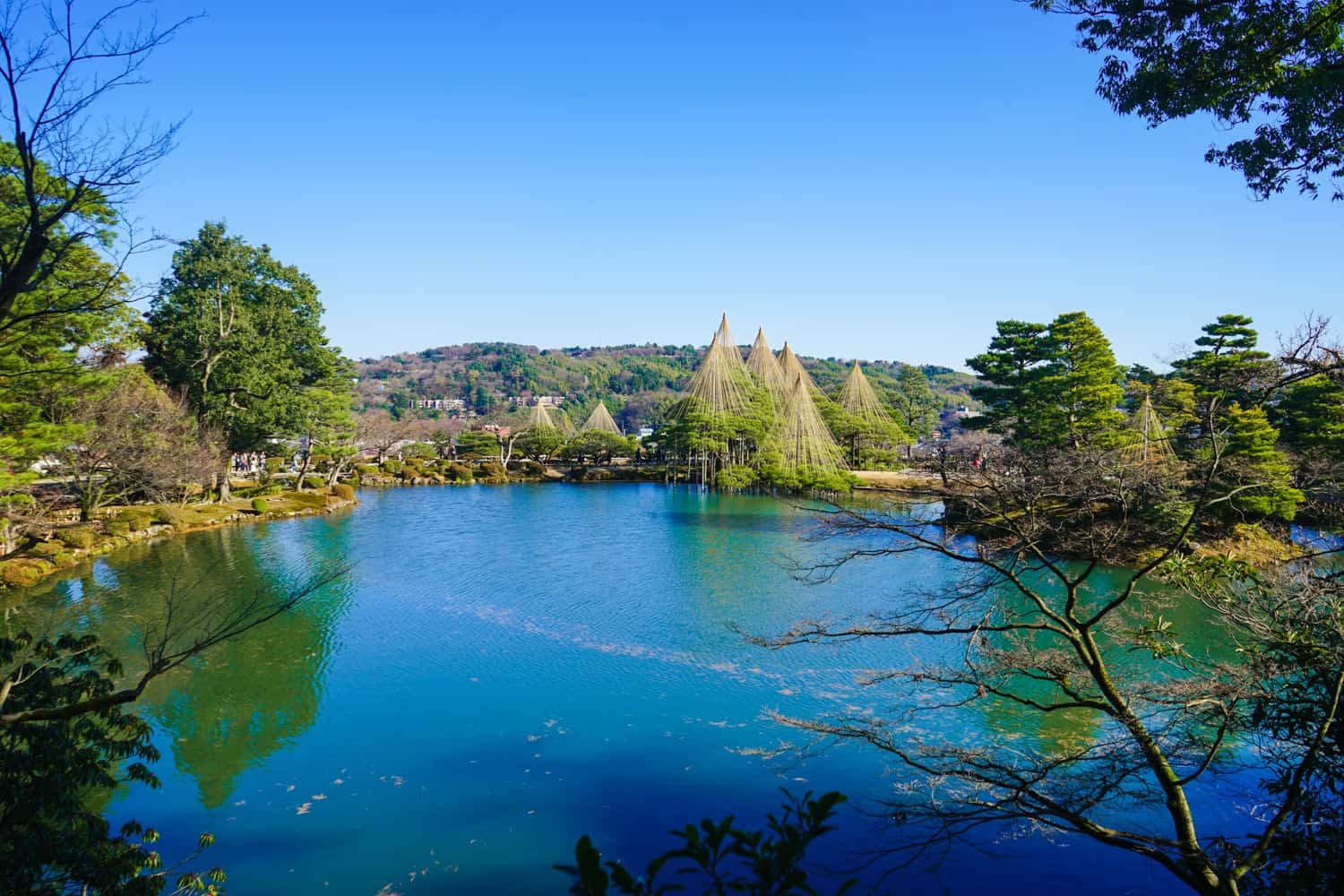
Day Seven: Sushi, Architecture, and Gardens in Kanazawa
I love Kanazawa! I added it to my itinerary because so many of my friends told me it was their favourite place in Japan and I came away having fallen head over heels in love with it, too. This lovely city on the coast is one of the more chilled-out spots in the country, where you can take things slow and enjoy where you are, rather than rushing around and trying to see as much as possible.
Odds are, you’ll be travelling a fair distance to get to Kanazawa (it’s about three hours on public transport from either Tokyo or Yudanaka), so you likely won’t get into the city until the afternoon. That’s no big deal because there’s not a huge pressure to sightsee here.
There are three main standouts when it comes to Kanazawa — the sushi, the history, and the gardens — and as long as you get to experience all three, you’ll be doing great. In fact, odds are, you’ll be able to see them all today.
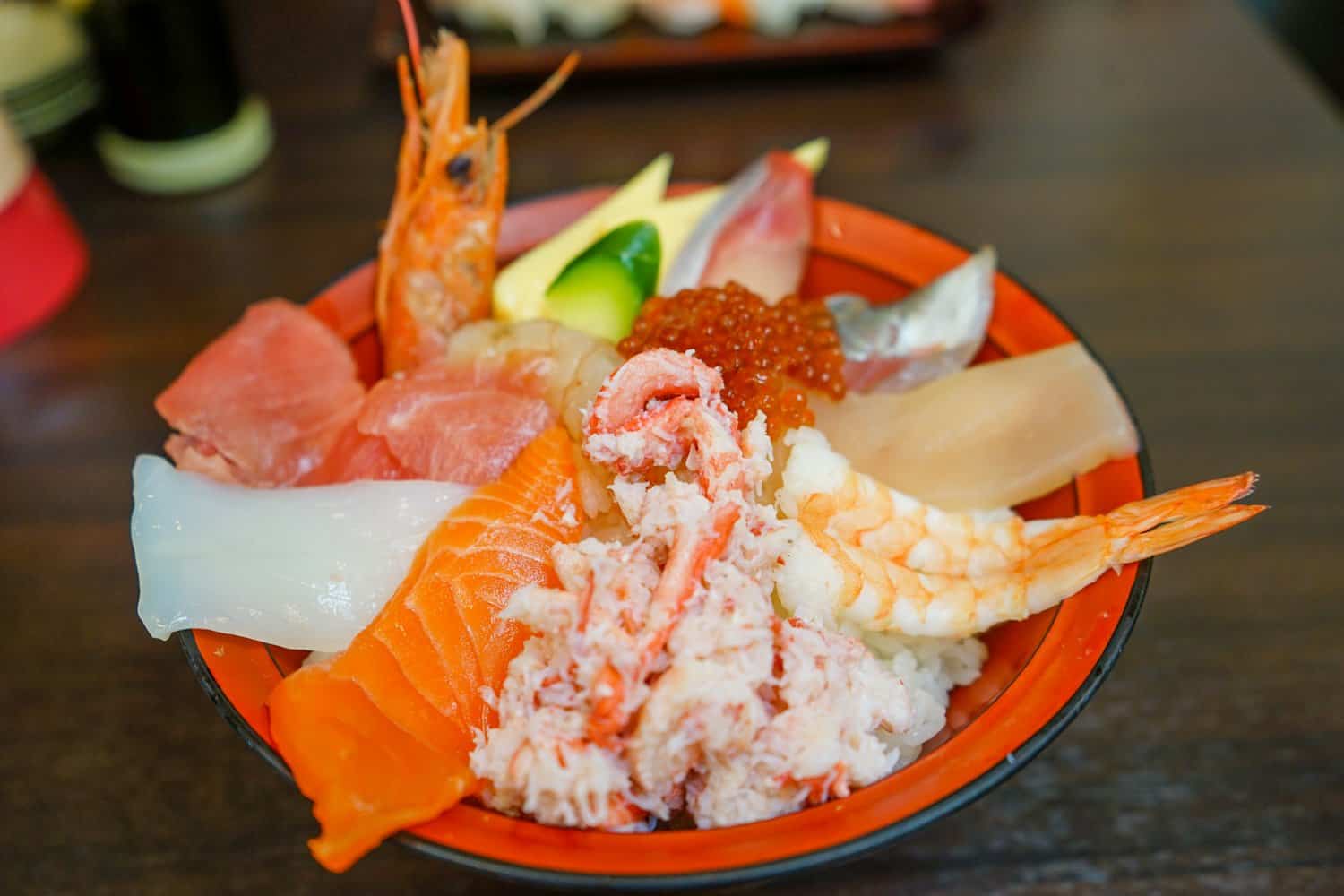
If at all possible, try to time your arrival in Kanazawa with lunch. One of my favourite meals in Japan was at the fabulous Omicho Market, which is famous for its sushi, sashimi, and high-quality fresh seafood.
The market is less touristy than the chaotic Tsukiji Market in Tokyo, and that means more locals, cheaper prices, and just-as-fantastic seafood. Wander the stalls taking photos, choose a restaurant that’s packed with locals, then sample some of the freshest sashimi you’ll ever encounter. Let’s just say I don’t plan on opting for sashimi outside of Japan very often after this experience!
After lunch, kick off your sightseeing in Kanazawa by heading to its most famous attraction: Kenruko-en Gardens. It’s one of the top three gardens in Japan and makes for a perfect way to soak up the relaxed vibes. You could see the entire park in half an hour, but most people opt to go slow and spend a full hour there. Somehow, Dave and I managed to fill a whole two hours in the park, sitting beside the pond, admiring the trees, and wandering down every pathway we could find.
To round off you afternoon explorations, pop over to the nearby Kanazawa Castle for a deep dive into Japanese history and architecture, before venturing out for some more delicious seafood in the evening.
Where to stay in Kanazawa: Kanazawa is home to some seriously cool accommodation! We had a hard time choosing where to stay because every property looked so cosy and inviting. In the end, we settled on this minimalist, modern set-up — it was great value for money relative to most other places we stayed in Japan, especially when you consider it’s only been open a year. It’s in a great location, right outside Omicho Market, where you’ll sample the best sushi of your life. Also within walking distance is Kanazawa Castle and Kenroku-en Garden, so you’re really staying in the heart of it all. I recommend signing up for the traditional Japanese breakfast, as you’ll likely not have had anything else like it before! There’s also an onsen and laundry facilities (always appreciated mid-trip!), and the staff were so sweet and kind.
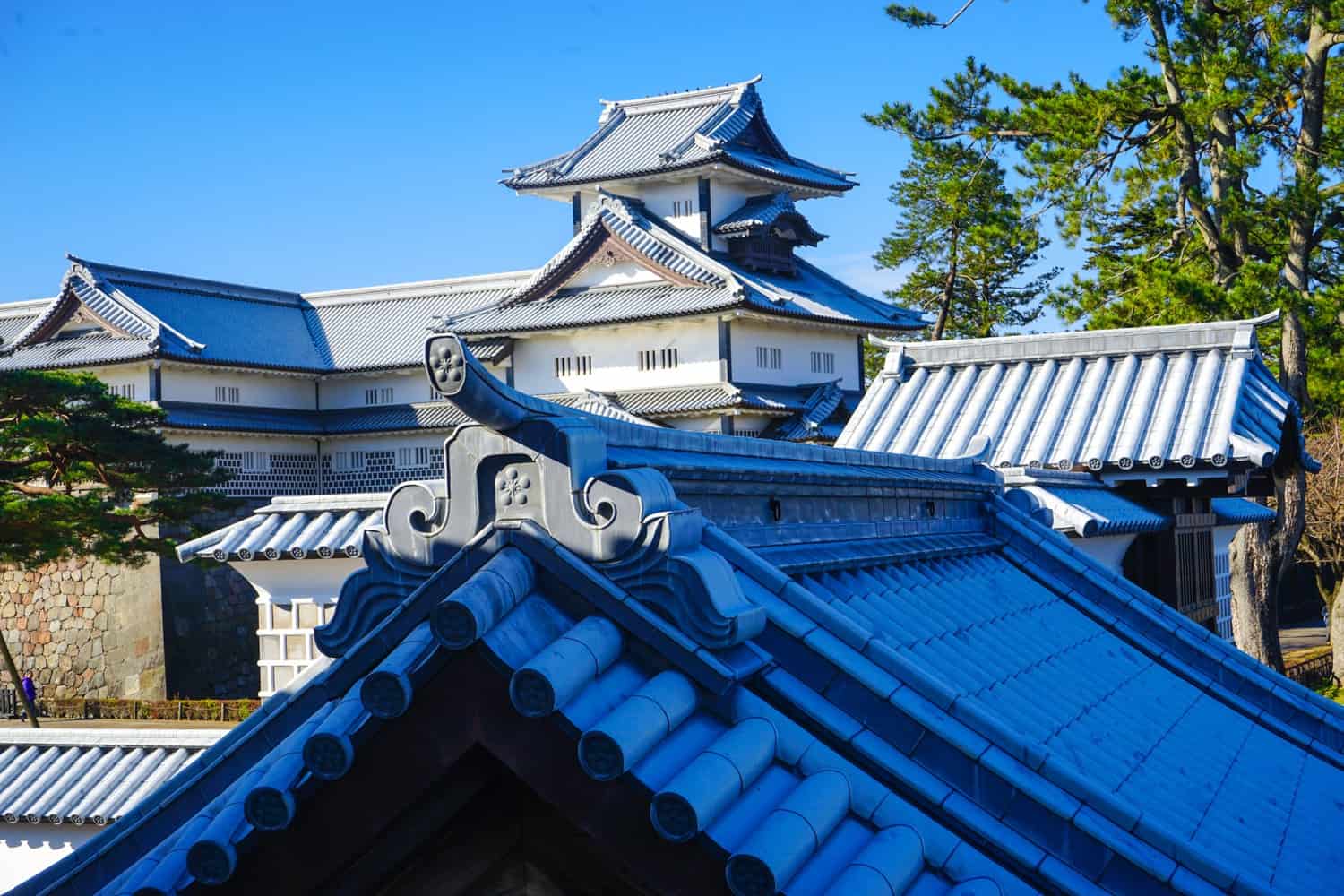
Day Eight: Go District-Exploring in Kanazawa
For your second day in Kanazawa, get ready to get your history on by spending some time in the well-preserved teahouse, geisha, and samurai districts.
Higashi Chaya District is the largest and more famous geisha district, dating back to the 1820’s, and is full of pretty buildings, teahouses, and gold leaf galleries. Make sure to take a look around Ochaya Shima, an old geisha house that’s been preserved as a museum and is fascinating to walk around.
If the crowds at Higashi Chaya get too much for you, spend some time around the nearby Nishi Chaya and Kazue-machi districts, which are less crowded. Nagamachi Bukeyashiki District is where middle-class samurai families used to live and is now home to canals, cobblestone streets, and mud walls surrounding former samurai houses.
Spend the afternoon wandering alongside Kanazawa’s river as a lowkey way to round off your time in the city.
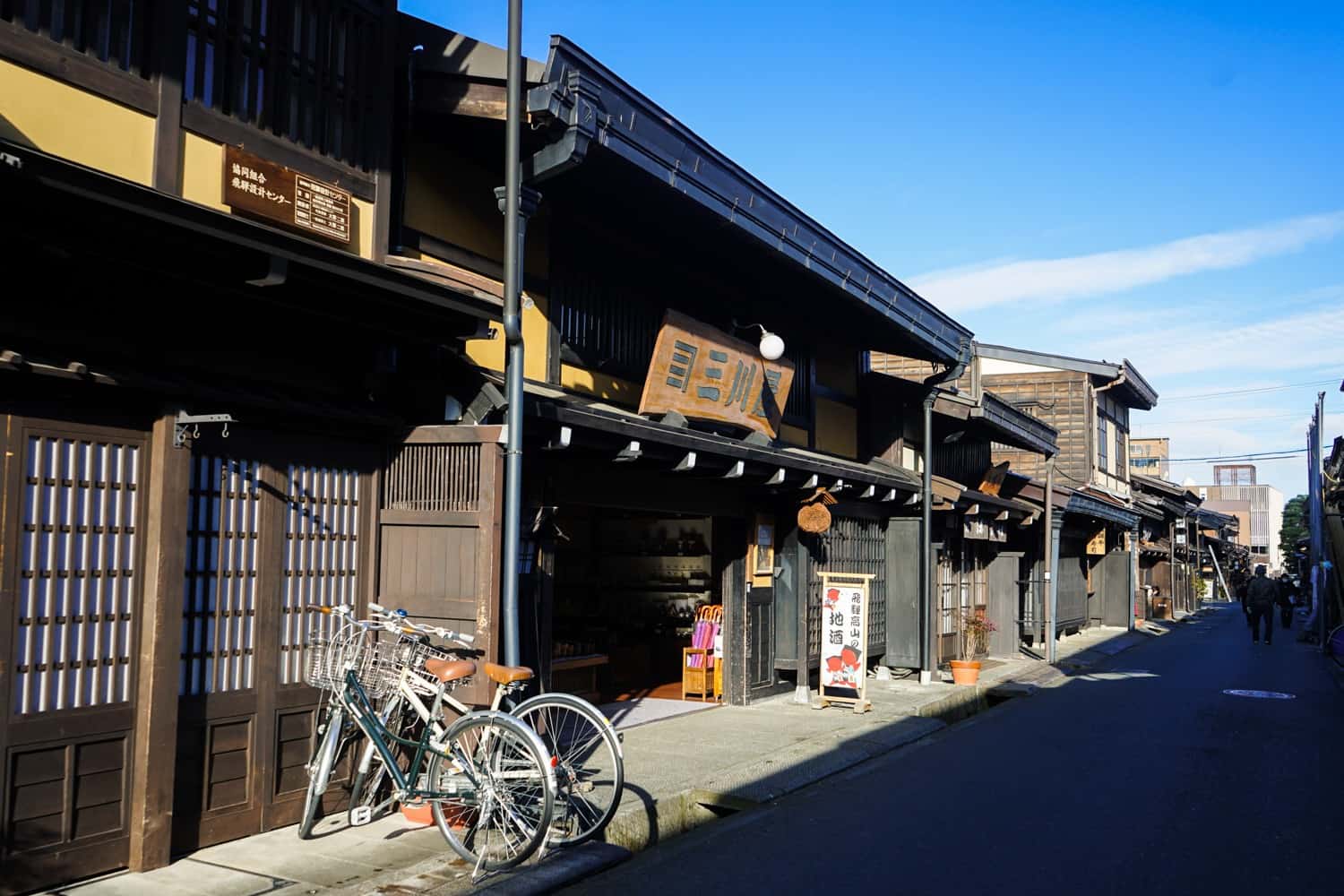
Day Nine: Step Back in Time in Takayama
Takayama, in the Japanese Alps, is a relaxed mountain town with beautiful traditional buildings, famous sake, and delicious Hida beef.
Spend your morning exploring the old wooden houses and hillside shrines, while making it a priority to check out one of the town’s cosy cafes for a soothing cup of green tea.
In the afternoon, head to the Hida Folk Village — an open-air museum showcasing 30 traditional farmhouses in the architectural style of the Hida region. If you were feeling particularly ambitious, you could attempt to squeeze in a half-day trip to UNESCO World Heritage Site Shirakawa-go, where you’ll find a secluded village full of traditional gassho-style homes with steep thatched roofs that keeps the snow off in colder months.
Make sure to squeeze in some sake-tasting and Hide beef-sampling during your evening in Takayama.
While Takayama is small and easily explored, there’s tons to do in the surrounding area, so you could easily swap your itinerary around in order to spend two nights here and one in Kanazawa.
Where to stay in Takayama: In Takayama, we stayed in a small, locally-run guesthouse in the centre of town. It felt like particularly good value for Japan, as it was one of the few places we stayed that you could describe as spacious! It even had a kitchen and washing machine. The beds were comfortable and the hotel was within walking distance of everywhere, including the train station. It was quiet, the staff were lovely, and overall, it made for a comfortable stay!
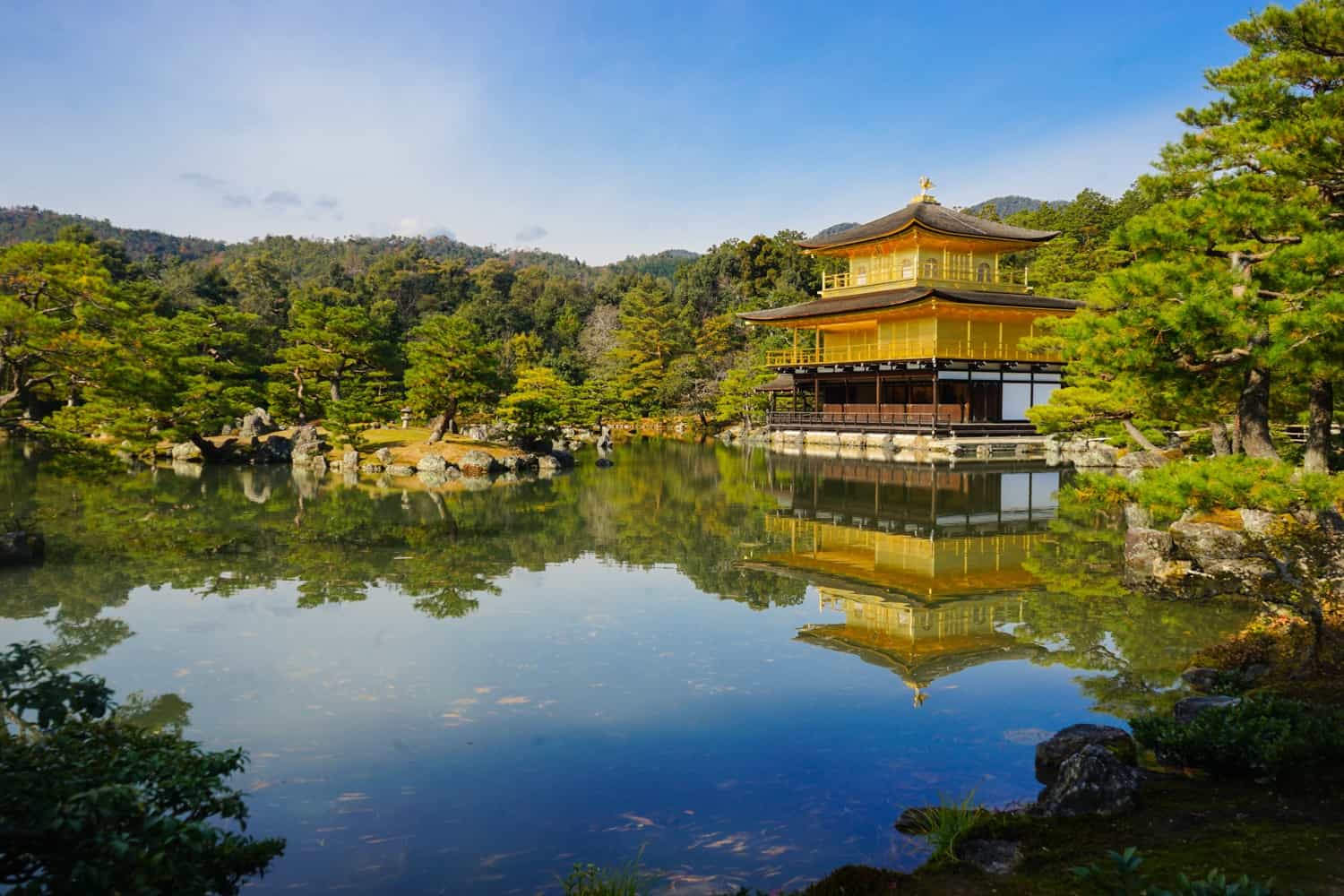
Day 10: Check Out the Highlights of Northern Kyoto
Kyoto! This will likely be one of the highlights from your trip to Japan — as long as you’re prepared for the number of tourists to be intense at times.
The busiest time to travel is the first week of April when cherry blossom season rolls around and you’ll be looking at extreme prices and enormous crowds if you decide to visit then. In mid-November, the autumn foliage hits its peak, and it’ll be almost as crowded. In general, summer and winter are the least overwhelming months in Kyoto, although mid-August and the week around New Year’s Day are popular with local tourists.
Aim to spend your first day in the city hitting up the highlights of Arashiyama, in Northern Kyoto. Make the Bamboo Grove your first stop, as the later in the day you leave it to visit, the more people you’ll have to contend with. Unless you can get there right as the sun rises, dismiss your dreams of having the entire spot all to yourself. Still, it’s a beautiful place, whether it’s overrun with tourists or not.
Tenryu-ji Zen temple, at the entrance to Arashiyama Bamboo Grove is worth a look and worth the entrance fee for some respite from the noise, and it’s home to one of my favourite gardens in Japan.
After grabbing some lunch in Arashiyama, head over to Kinkaku-ji temple — one of Japan’s most iconic buildings. Otherwise known as the Golden Pavilion, this is a must-see while you’re in Kyoto, and I bet you won’t be able to stop taking photos of its glistening reflection in the water. It’s likely to be the most crowded place you visit in all of Japan, but it’s still easy to snap shots without other people in view.
Where to stay in Kyoto: In Kyoto, we stayed in a cosy hotel in the heart of town — we loved this place so much in 2017 that when we returned to Japan this year, we knew we’d have to stay there again! The property was in a fantastic location for exploring Kyoto and the bathrooms were nicer than anywhere else we stayed. It’s one of the top-rated guesthouses in the city — while also being one of the cheapest — so when you take that into consideration, I’m convinced you won’t find anywhere better to stay in Kyoto.
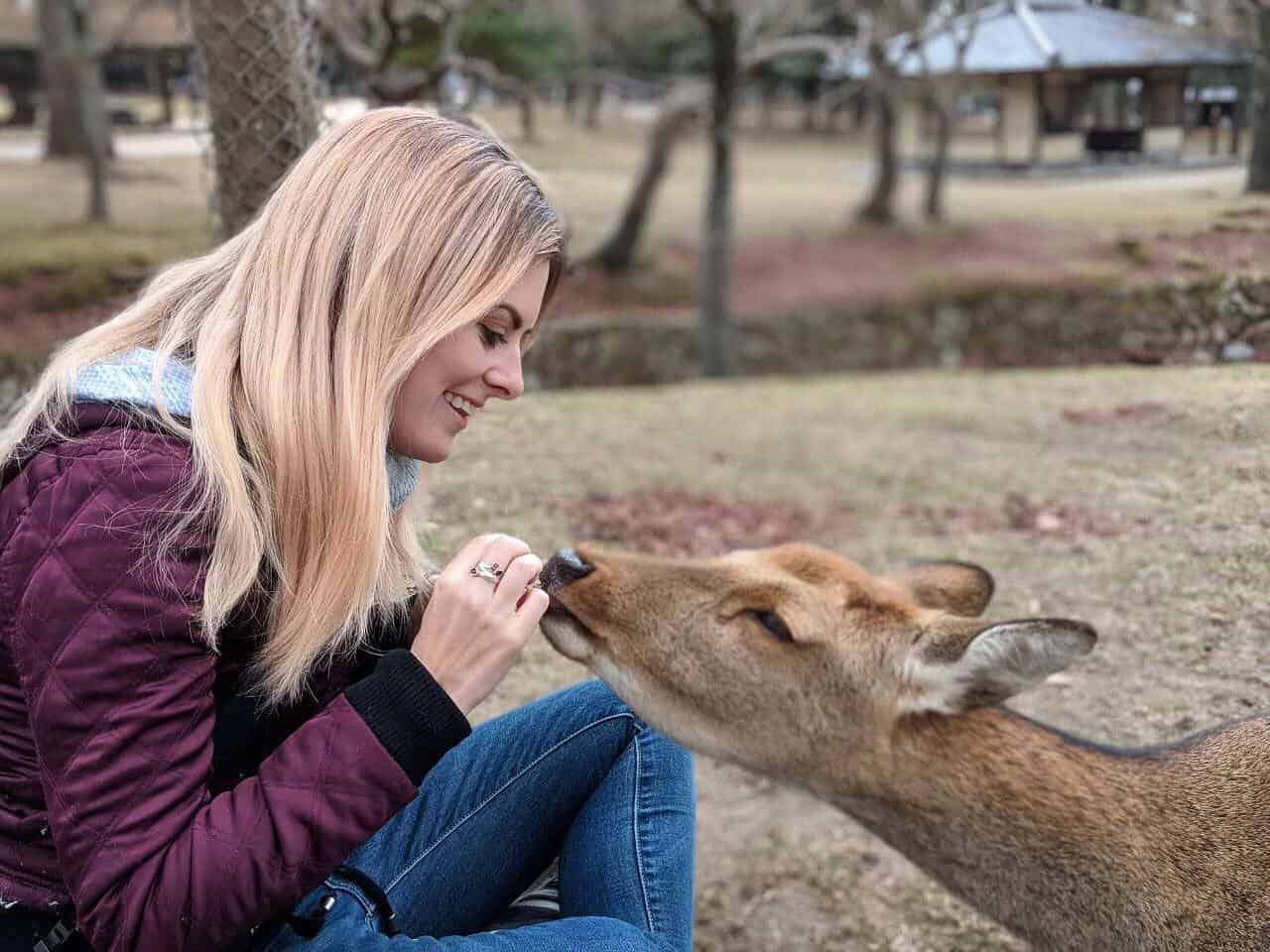
Day 11: A Day Trip to Deer-Filled Nara
The undisputed highlight from my time in Japan was the day I spent playing with deer in Nara. If you want to know what my idea of paradise looks like, it’s fairly identical to that photo above.
Nara was the first capital city in Japan, so there are lots of shrines and historical activities to explore while you’re there.
Or.
You could spend the entire day squealing over the wild deer that have made Nara their home. With over 1,000 of them inhabiting the city, you’ll find them everywhere. In the parks, outside the temples, wandering into shops, queuing for a bus — these deer are viewed as sacred by locals and are protected as national treasures. You can buy snacks from vendors around the city and feed them if you like — it’s a lot of fun, especially when they bow to greet you!
If I was going to do this day trip again, I’d book a morning half-day tour that takes you to all of the important temples, shrines, and historical monuments in Nara. Then, I’d spend the entire afternoon just hanging out with the deer and marvelling at how calming they are. (I got so excited about the deer that I spent all day posing with them and didn’t see any of the important parts of Nara!)
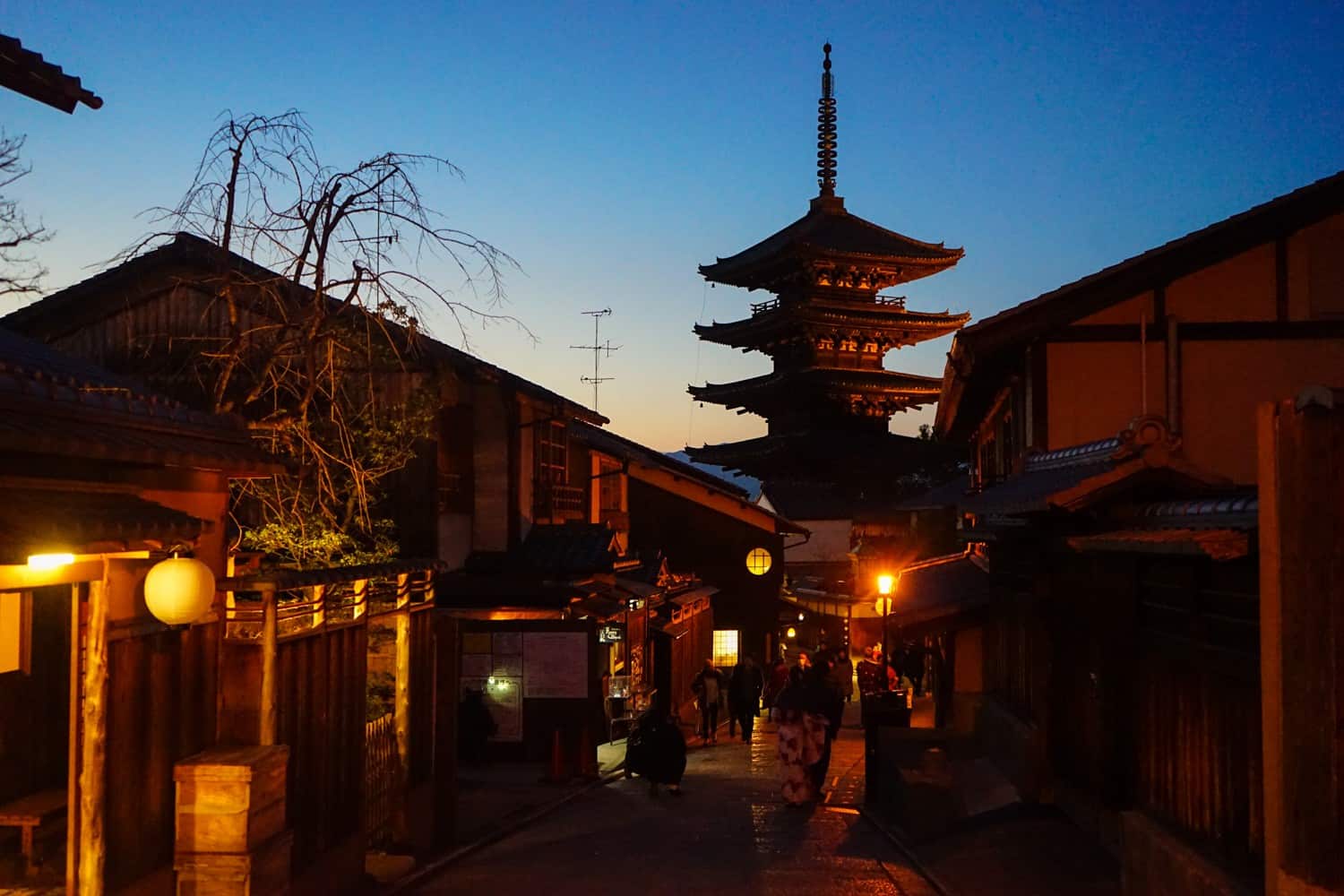
Day 12: Geishas and Shrines in Kyoto
For your final day in Kyoto, plan to spend your time hunting down geishas, wandering through the historic district, and hiking through the Fushimi Inari Taisha shrine’s thousands of red torii gates.
Kick off your day in the historic Higashiyama district, one of the best-preserved parts of Kyoto. Stroll through the narrow lanes, take photos of the old wooden buildings, and stop at traditional stores to stock up on souvenirs.
Roughly an hour before sunset, head to Fushimi Inari Taisha to get some exercise in. I recommend walking the entire four kilometre climb up the mountain for one specific reason. Sure, you’ll get the gist of the shrine within the first couple of minutes, but the further you walk, the less people you’ll encounter. By the time you reach the top, you’ll have those famous torii gates all to ourselves. By going around sunrise or sunset, you maximise your chances of finding solitude.
Next up: the district of Gion! It’s the birthplace of geisha culture and as such, many tourists head there in search of a glimpse of a working maiko or geisha. Make sure you head there in the evening after climbing through the torii gates.
Day 13: Hiroshima and Miyajima Island
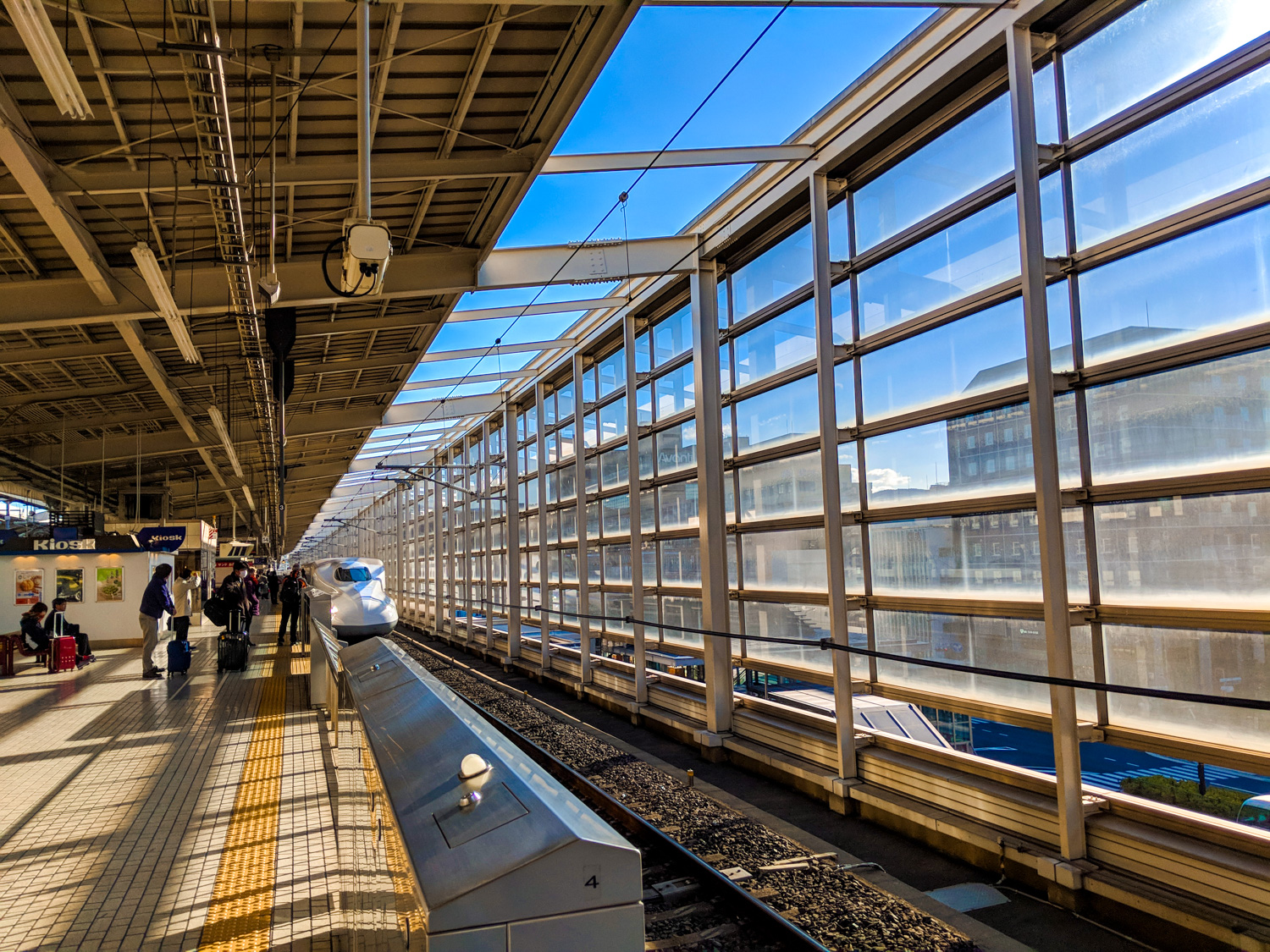
Get your day started early because we’ve got a lot of ground to cover. You’ll be heading to Hiroshima today and the best way to get there is via the Shinkansen bullet train. There’s plenty of departures running throughout the day, so there’s no need to panic about getting to Kyoto Station at a certain time. However, it does take slightly over 90 minutes to get there, and we’ll only have one day to explore, so earlier is better!
Some visitors to Japan wonder if it’s necessary to go to Hiroshima; let’s just say it’s not the most cheerful of travel experiences! However, in my opinion, Hiroshima is so important to visit. Not only will you get to fully educate yourself on the horrors that took place here, but you’ll also be able to witness the city’s incredible strength and resilience.
Hiroshima in 2024 is so much more than its past. It’s a vibrant, modern — even hipster — city with excellent food and warm locals. It’s inspiring to witness first-hand how the destination has grown and evolved over the past 80 years. You’ll get a lot out of your visit, I think — I certainly did.
I recommend aiming for the Nozomi 77 Shinkansen, which leaves from Kyoto Station at 7:40 a.m. With no changes along the route, it gets you to Hiroshima by 9:20 a.m.
You can use Google Maps’ public transport information to get from your Kyoto hotel to Kyoto station via the bus — or take an Uber — and rather than having breakfast in a cafe, I recommend grabbing some snacks from a 7-11 at the station to help save on time.
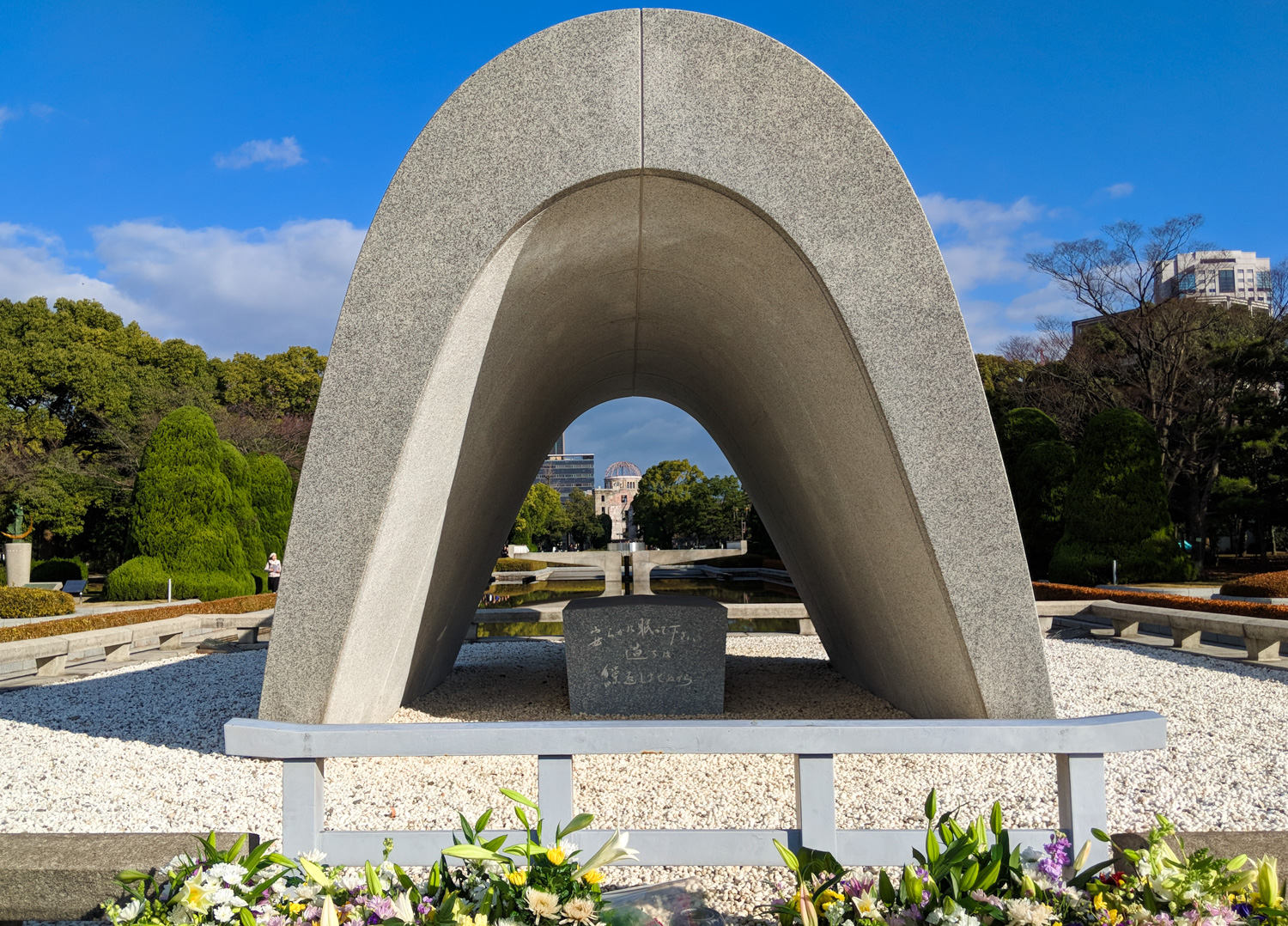
Hiroshima’s train station is located roughly three km, or two miles, from the city’s main landmarks, so I don’t recommend leaving your luggage in the station while you explore. Instead, do as I did and venture first to your hotel to drop your bags; your accommodation should be close to the centre of town. I stayed in this capsule hotel — my first time in one! — and loved it. It was just a three minute walk to Peace Memorial Park, which is where our explorations begin.
Start off by giving yourself several hours to wander the Hiroshima Peace Memorial Museum. It’s undeniably intense and a difficult place to visit, but you need to go in order to fully understand what took place in this city.
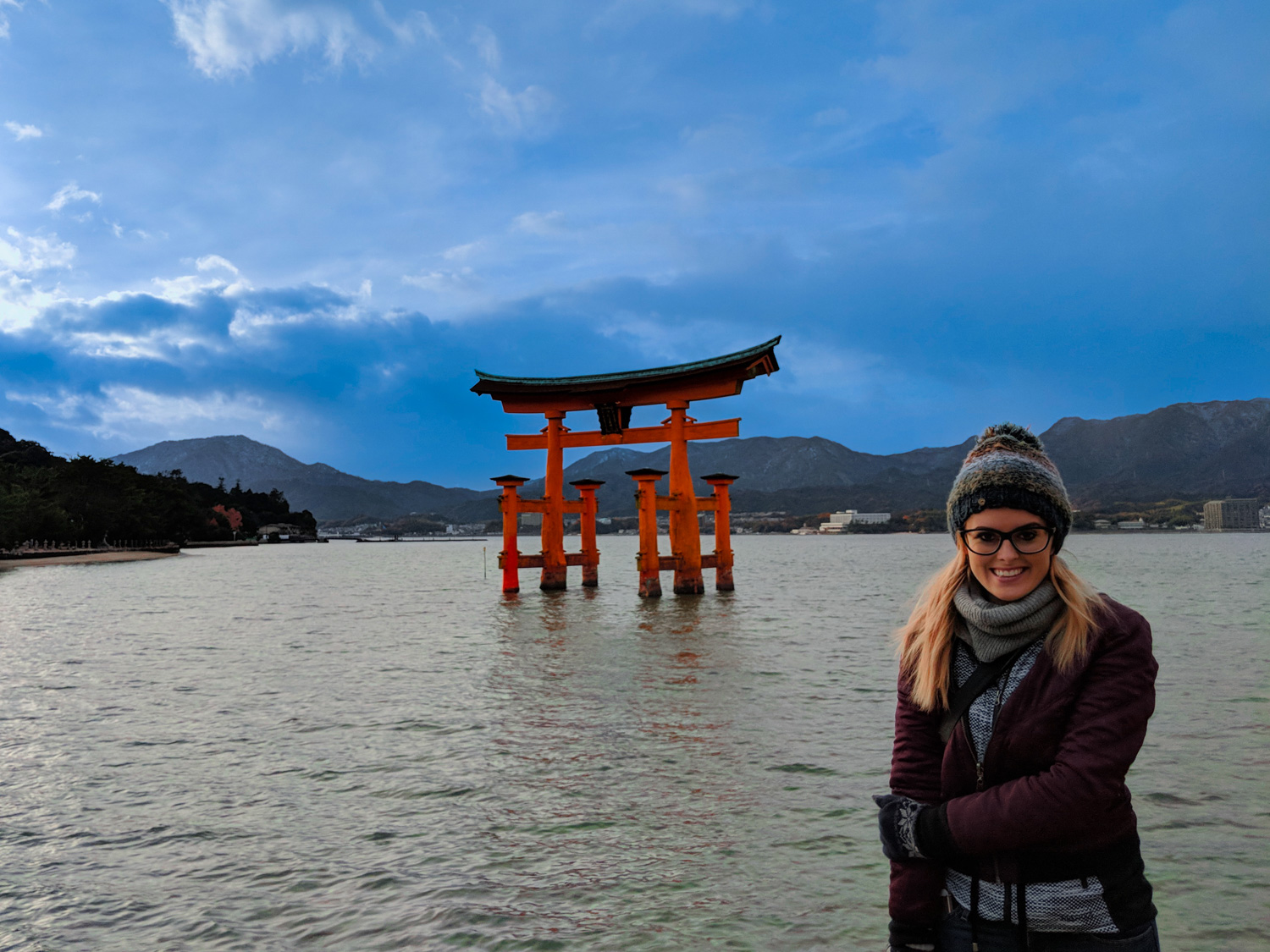
After a quick lunch in Hiroshima, hit the rails and take the train and ferry out to nearby Miyajima Island. It’s a place for respite after a heavy morning of sightseeing, and while you’re there, you can swoon over the wild deer that roam the island, snack on street food, and take selfies in front of the famous Great Torii of the Itsukushima Shrine — you’ll probably have seen this in Japan guidebooks. Most visitors love the laid back vibe of Miyajima.
Head back to Hiroshima for dinner and tuck into a delicious plate of okonomiyaki. Hiroshima’s version of this savoury Japanese pancake is filled with yakisoba noodles, and is the ultimate in comfort food. Definitely make sure to try this while you’re in town so that you can compare it to the Osakan version at your next stop.
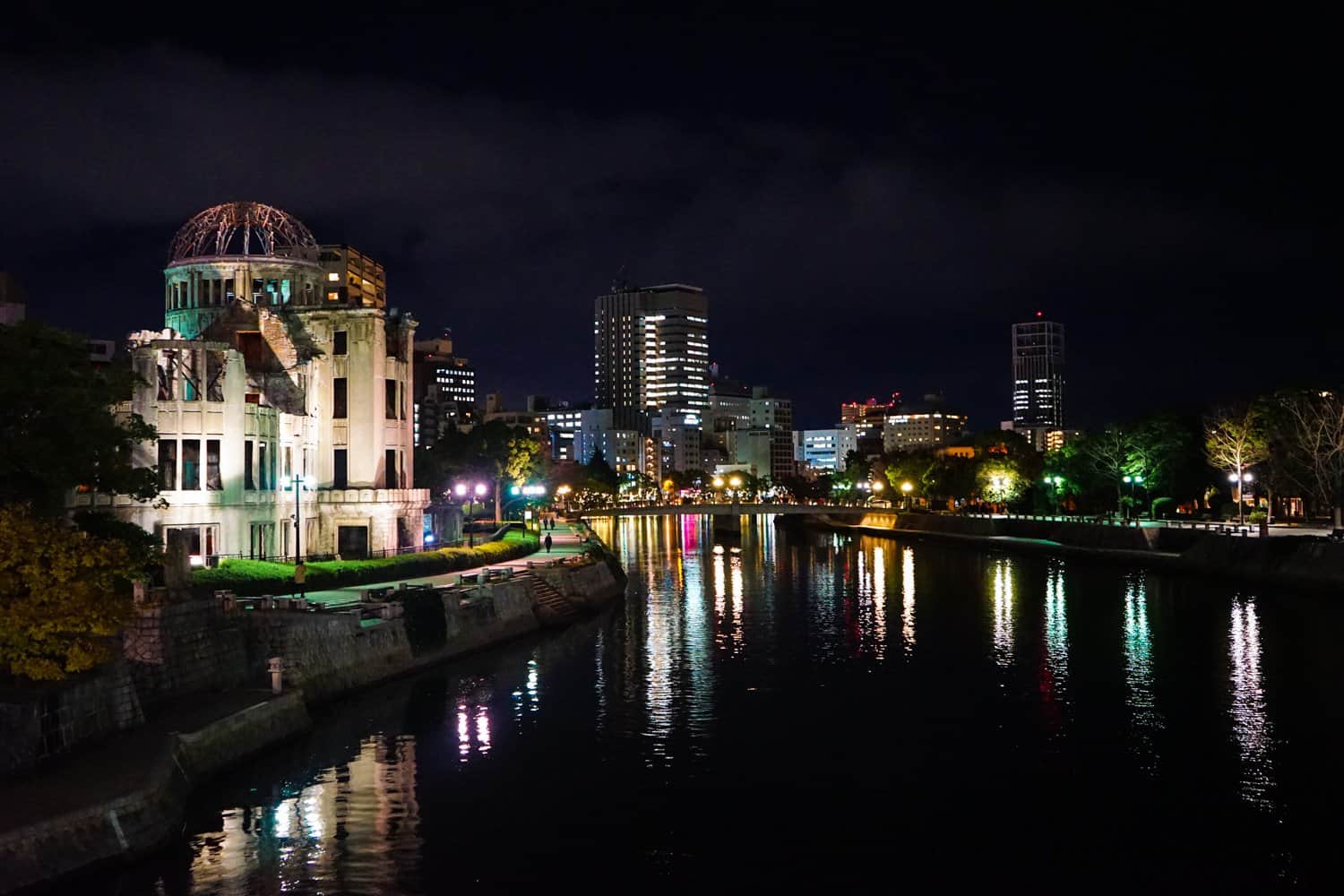
Where to stay in Hiroshima: In Hiroshima, we opted for a capsule-style hostel because I didn’t want to leave the country without trying one. Fortunately, we found ourselves in a room with only two other people staying there, so our capsule room with 20-odd beds was light on snorers. The owner of this place was ridiculously lovely, and it was in walking distance of all of the attractions. Really great bathrooms, a fun common area, and a cheap price. I would have stayed another night!
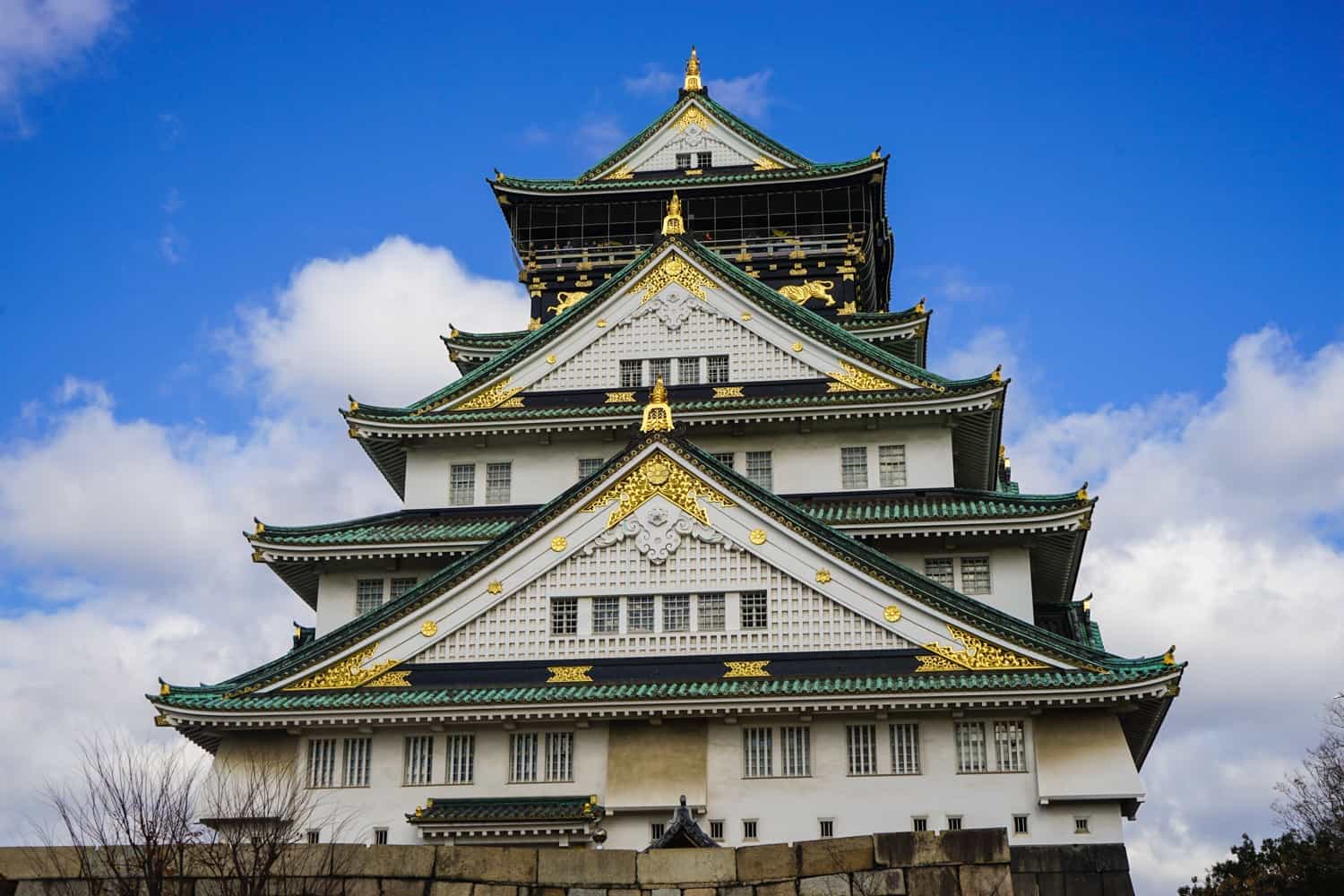
Day 14: Start Eating Everything in Osaka
Wake up bright and early on day 14 and spend a couple of hours wandering through Hiroshima before checking out of your hotel and heading to Osaka. I used this time to stroll through Shukkei-en Garden, visit the Children’s Peace Monument, and take one final wander through Peace Memorial Park.
Onwards! Osaka ended up being my favourite city in Japan, and that’s primarily because it’s where you go to eat. I had one of the best meals of my life in Osaka, and every single thing I ate felt like it was on the verge of life-changing. Dramatic? Always. But man, I love the food in Japan.
After grabbing some lunch, head straight to the city’s most famous attraction: Osaka Castle. If you’re tight on cash, you don’t need to pay to head into the interior, but it does have a pretty great view over the city from the top floor. It’s one of the prettiest castles in Japan, so even sitting outside and taking photos of the shimmering specks of gold feels like a worthwhile activity.
Spend your first evening exploring Dotonbori by night. This vibrant, bustling neighbourhood, and the flashing lights at night are exactly what you’re picturing Japan to be like. Head to Hanamaruken Namba Houzenji for a bowl of pork rib ramen for dinner because it was one of the best meals of my life.
If you’re as much of a foodie as I am, you might want to opt to take this three-hour walking food tour of Osaka while you’re in town. You’ll get to sample 10 of the best local dishes, like takoyaki and yakitori, and two local drinks. The tour covers a whole range of eating establishments, leading you from a street stall to a market, introducing you to a classic Japanese restaurant and izakaya, and finishing off with a secret local hangout.
Where to stay in Osaka: I rounded off my time in Japan with a little bit of a treat, opting for this four-star hotel that offered a ton of freebies. It’s all about the onsen here — it’s open all day and is simply beautiful. After you’ve finished your daily bathe, there’s free ice cream to eat, free comics to read, massage chairs to relax in, and even free ramen to slurp on. Yes, really! It was in a great location for Osaka — just a couple of blocks from the nearest metro station. The decor was calming and traditional; the perfect way to say goodbye to Japan.
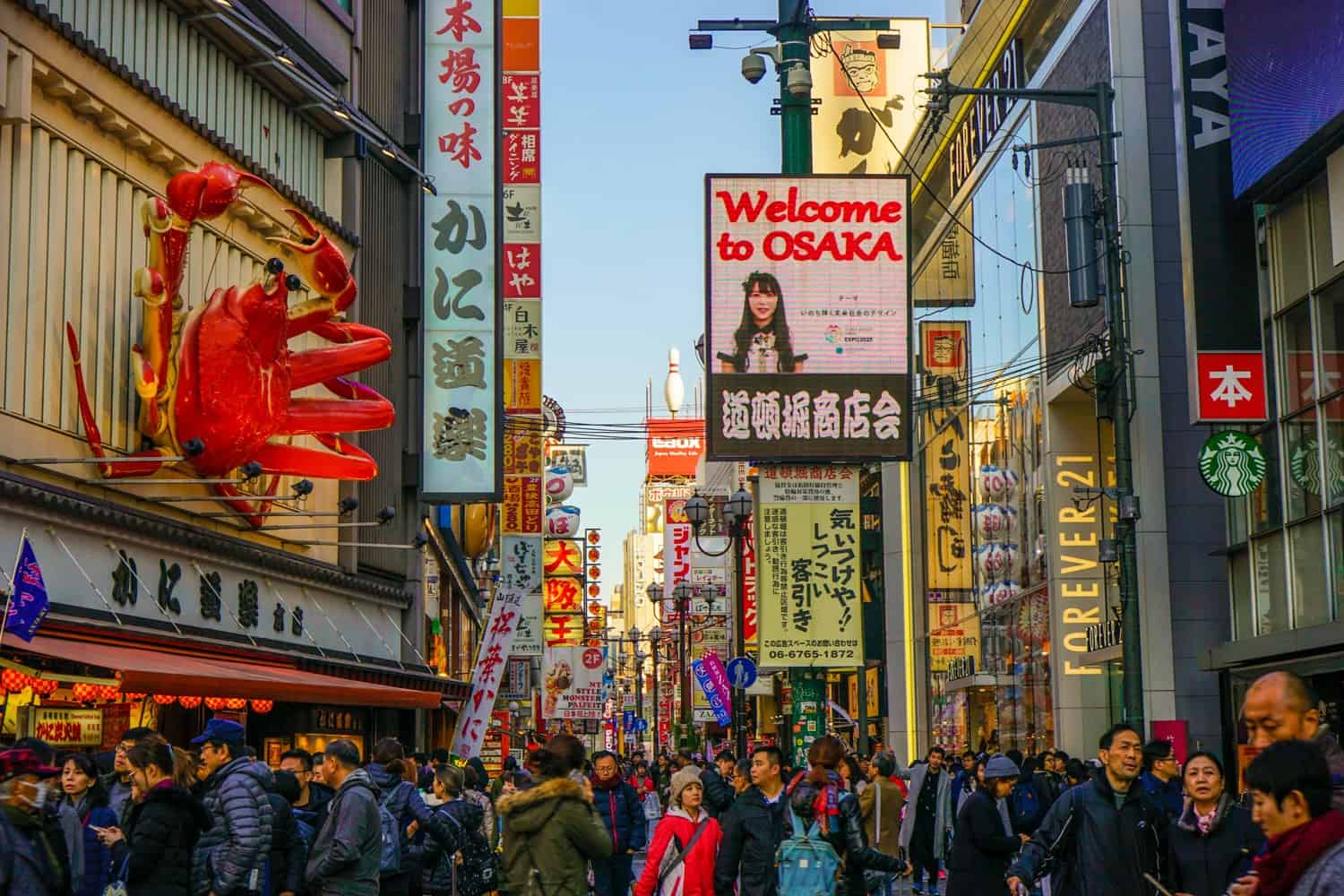
Day 15: More Osaka Exploring
If you’re flying out of Tokyo, you’ll likely want to head back to the capital today, but if, like me, you’re flying out of Osaka, you have another day to eat, eat, eat!
Spend your morning in northern Osaka, exploring the area around the Umeda Sky Building. Consisting of two 40-floor skyscrapers connected at the top by the world’s highest escalator, it offers an excellent view of the city and is one of Osaka’s most recognisable landmarks. If you’re into your technology, I recommend spending the rest of your morning marvelling at the enormous Yodobashi Umeda electronics store. You could easily spend an entire day getting lost inside there!
Head to nearby Nakazakicho for the afternoon, which is Osaka’s hipster neighbourhood, and so much fun to explore. There’s lots to keep you busy here, from vintage clothing stores to adorable cafes to craft beer to homemade organic granola, because of course.
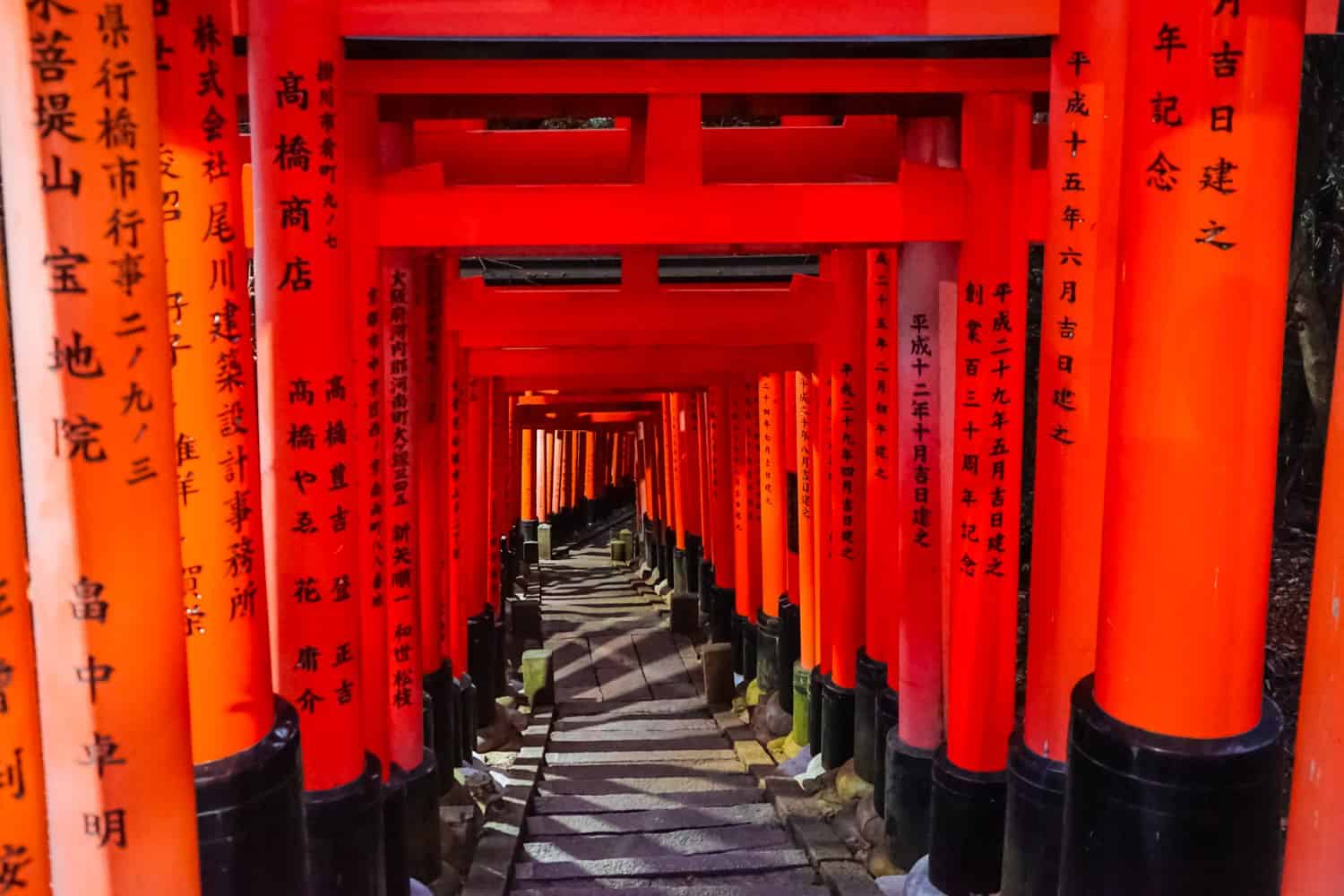
And That’s How to Spend Two Weeks in Japan!
This itinerary is perfect for a first-time visitor to Japan. It won’t feel too rushed, there’ll be a good mix of cities and nature, and you’ll undoubtedly leave with a dream of returning for a second visit.
There isn’t too much I’d suggest in terms of alternations: I’d probably suggest skipping out on the snow monkeys and giving yourself an extra day in Takayama instead. You might want to trade a day in Tokyo for a day trip to Nikko, or potentially take a half-day trip from Osaka to Kobe, but that would really be it.
Now, book those plane tickets and start counting down the days until you touchdown in Tokyo!
If you’ve been to Japan before, what would you have done differently?
Related Articles on Japan
🇯🇵 What’s it Like to Travel in Japan?
💴 The Cost of Travel in Japan: My Budget Breakdown
🍣 15 Weird and Wonderful Things to Eat in Japan
🎌 23 Incredible Things to Do in Osaka, Japan
😎 Hipster Harajuku: The Coolest Neighbourhood in Tokyo
🦔 Should You Go to a Hedgehog Cafe? My Experience in Japan
🐒 Why Seeing the Snow Monkeys in Japan Sucked

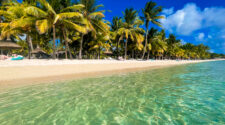
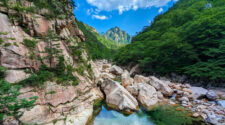

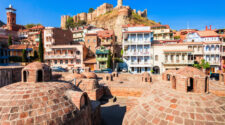
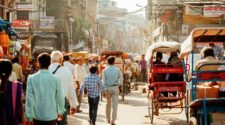
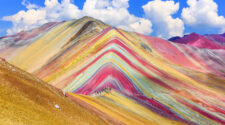
Hi Lauren,
Great write up.
Just curious what was the final cost of your trip minus the flight costs.
Planning on going next year and want a gauge on how much I will need. Don’t worry about costing it down to make it more appealing. :)
Thanks,
Jon
I published a detailed budget breakdown last week. Here’s the link: https://www.neverendingfootsteps.com/cost-of-travel-japan-budget/ worked out to just under $100 a day. Would never lie about my expenses to make a place seem more appealing, by the way! I pride myself on my transparency.
Thanks Lauren,
Didn’t mean to offend. Just meant to include things like food, activities, travel, etc so I can get a good picture.
New to your site, didn’t know you posted a budget.
Jon
No worries!
Where did u stay in Yudanka?
It’s linked in this post: https://www.booking.com/hotel/jp/yasuragi.html?aid=1514105&no_rooms=1&group_adults=2&room1=A%2CA
If you ever make it to Okinawa, please visit the Pineapple Farm and try pineapple chocolate!! My family lived there for a couple years when I was younger and whenever coworkers of my siblings are stationed over there (in the military), I always ask them to bring me back pineapple chocolate – so delicious!!
Oooh, would love to go to Okinawa! I met a couple who live there while I was on my Great Barrier Reef tour last year and they really sold it to me :-)
Thanks Lauren. This perfect. I am planning on visiting Japan mid April 2019 and hopefully will see the cherry blossoms in bloom. Your itinerary sounds fantastic so I will definitely use it to plan my trip.
Ah, the cherry blossoms look amazing! You’ll have such a great trip :-)
Love this post! I’m hoping to go to Japan within the next few years :) Did you find it difficult to communicate while there?
Not at all! I was expecting a higher language barrier, but we didn’t struggle to communicate. There were a couple of restaurants and train stations where the locals couldn’t speak any English, but miming helped us a lot.
Japan is one of my top dream destinations! Hoping to head there next year. I am bookmarking this itinerary for future reference. This is so, so helpful – along with your Japan budget breakdown! Thanks for the awesome resources :)
Thank you for reading! :-)
Wonderful thank you for this fantastic post.! We are heading to Japan (first time visit) in 10 days time for 2 weeks ? super excited! I have done heaps of research and read lots of blogs etc and we have pretty much got the same route planned. Just a few wee differences…. we are skipping the snow monkeys but visiting Matsumoto and the Alpine Route instead.
Thank you once again for your recommendations and sharing your knowledge with us ?
Sounds like a pretty perfect route to me! You’re going to have an incredible trip and eat SO WELL. :-)
*runs to pinterest pins* Thanks for all the information! Will def use this to plan my stay in Japan xx
Yay! Hope you have an amazing trip :-)
As you experienced, Japan has a terrible stance on the ethical treatment of animals. As I’m also sure you know, Japan is one of only three nations- the others being Iceland & Norway- that still engage in the slaughter of whales (Iceland’s began last week). For that reason, I would never set foot in those countries.
I’m not a fan of travel boycotts, but to each their own! If I didn’t visit countries that slaughtered whales, I’d feel as though I’d have to extend the same rule to countries that slaughter chickens, cows, pigs… and then I’d have nowhere left to visit.
Hey LAUREN! you are such an amazing writer. I loved this post. you represent Japan very well. after reading this blog, I am planning to take a trip to Japan in my coming holidays.
thank you for this great piece of information.
Thank you so much! I hope you make it there and have a wonderful trip!
This itinerary sounds amazing! I spent a month in Tokyo back in 2014 working for a language program. It was an amazing month but sadly I didn’t get to explore around Japan as much as I would have liked to. We’re headed back in January but only for a 2 day layover. So will definitely look into your Tokyo suggestions. And have pinned this for later when I return to Japan and get to explore more!
Hi Lauren, I really enjoyed while reading your blog. Yes I totally agree with NISHA, Your are such a amazing writer.
Thanks!
I have been to Japan three times and I have to say this is the definition of a perfect trip around Japan! You hit all the major sites, saw a little bit of everything, and seemed to have a great trip. Now it’s time to start planning trip two, eh?
Thanks so much, Marie! I’d love to return during spring or autumn for my next visit.
I love the level of detail you included in this, Lauren. I have a week in Japan booked for October and I’m struggling to narrow down where to go. I know it isn’t really enough time to see much! Do you have any suggestions? Can I fit in Tokyo, Kyoto, and Osaka? And maybe Hiroshima?
Did you use the street vending machines?
They sell everything and are everywhere
I loved the soiled females panties machine the best :-)
Yeah, but only for drinks.
i can’t wait to head to Japan and replicate your itinerary exactly. Apart from the snow monkeys, as I don’t want to visit in winter anyway. Thanks for the useful post!
No problem! So happy to hear you found it useful :-)
The first time I went, we also visited Miyajima Island from Hiroshima… since then, we’ve (twice) stayed on the island for three nights. Totally worth it, as you might guess! Things do close early, but it’s lovely and the hike up Mt. Misen is great.
Ah, lovely! I’ll have to make sure I opt to spend more time there on a future visit :-)
Awesome tips! Will be headed to Tokyo for a week in a few months and this would really come in handy! I wanna try your Google Maps trick for food. I’ve always just researched a lot before I went but your trick seems like a lot of fun
Yeah! It’s mostly due to laziness on my part, but as long as I choose a place with high ratings, I’m very rarely disappointed :-)
Hi Lauren, We love Japan also but on our first trip (we live close by in Australia), we spent two weeks in Kyoto, venturing to Osaka, Nara and Lake Biwa from there. Next time we will want to go further afield and see much more, so I think your itinerary will serve us well for that trip. My husband isn’t keen to see the snow monkeys, so I was interested to hear that you weren’t that impressed. We will possibly switch out the 3 days in Kyoto for somewhere else, maybe Osaka so we can eat up big!
Hi Lauren, we are planning a two week trip June-July next year, two adults and my 11 yo daughter, who is just as keen as us to see Japan, being an amine fan and loving all things kitsch Japanese. You itinerary sounds perfect for us and will take you advice and skip the monkish but perhaps squeeze in Okinawa?
Does your itinerary include some rural Japan? I think you referred to a bathhouse, but we were thinking something up in the hills, very basic and authentic. Perhaps something like a short pilgrimage? Any ideas.?
Thanks so much for your great writing. I’m going to follow you!LUISA
Hi,
Great post! planning on going to japan on March and your tips and itinerary will definitely help!!
Did you travel by yourself? did you meet other travelers? I’ll be going on a solo trip and I’m worried it might get lonely… any tips?
Thank you!
Jen
Super helpful post, thank you! My husband and I will be visiting Japan for the first time in mid-March for about two weeks. We’d like a mix of city/modern and nature and old Japan and crafts, and good food! Does this itinerary make sense?
Day 1: Late afternoon arrival in Tokyo
Day 2: Tokyo
Day 3: Tokyo
Day 4: Morning trains to Takayama
Day 5: Takayama
Day 6: Morning train to Kyoto
Day 7: Kyoto
Day 8: Kyoto
Day 9: Day trip to Nara
Day 10: Kyoto
Day 11: Morning train to Hakone, do the loop that afternoon and stay overnight at an ryokan/onsen
Day 12: train to Tokyo, stay one last night
Day 12: Fly home
That sounds like a perfect itinerary to me! :-)
Hi! I just found your blog and I have to say that these Japan posts are incredible. There’s ample material online on Japan, but in the modern day of clickbait and 140 character statements, I actually sat and read each and every one of your posts from start to finish. Thank you for the time, effort, and for conveying your journey so eloquently. You’re helping me plan the honeymoon of a lifetime : ).
Quick question for you – what time of year did you go? Seems like November or December based on your snow monkey post. We were looking at mid to late November. Thank you!
Wow, that’s such a compliment! Thank you so much, Nikki :-) We went in early December.
Great post! I’m aiming to visit Japan in March and I’m going to follow your itinerary exactly.
Awesome! I hope you have the best time in Japan :-)
Hi and Happy New Year Lauren!
I plan to take my nice and nephew who are 18 yrs. old to Japan. Based on their age, what 2 or 3 cities do you think offer the most for them during a week in Japan? They might get bored with too many temples. Are there any physical activities/experiences that you could recommend? For example, in Hawaii we went diving with the fish with an underwater scooter. Thanks for your time and thanks for your insight!
Hi Lauren,
Your posts on Japan have been very helpful! :-) Thank you for sharing.
We are planning to make a trip out to Japan and was wondering what you thought of the following itinerary.
D1/D2: Traveling to Tokyo from the US (we are staying in Shinjuku)
D3-D4: Tokyo (East side one day and West side another day)
D5: Visit Studio Ghibli in AM and then take train to Kyoto (we are staying in Gion)
D6-D9: Kyoto (planning for one full day for Hiroshima/Miyajima and a half day in Osaka)
D10: Leave Kyoto early for Takayama – visit Shirakawago for the illumination event
D11: Explore Takayama in the morning and take train in afternoon to Nozawa Onsen
D12: Nozawa Onsen (ski day!)
D13: Nozawa Onsen (ski day!)
D14: Nozawa Onsen (ski day vs. Snow monkey vs. head to Tokyo early vs. something local?) – travel to Tokyo in evening
D15: Flight back to US from Tokyo in the evening
I am wondering what your thoughts are on our stopover at Takayama/Shirakawago. I was torn between getting tickets for the the illumination event vs. just visiting Shirakawago the next morning. I thought it would make the next day very rushed looking at the train time table since we would need to catch a train at 2 or 3PM in Takayama.
Also, I was very disheartened to read about your post about the snow monkeys. I wonder if you think it’s truly worth it. Our hotel in nozawa onsen has a bus that leaves at 9AM, reaches the park at 10AM and then returns to the hotel around 4PM. It will basically eat up the whole day. We weren’t technically planning on skiing 3D in a row but since the northeast has yet to have any significant powder snow… we are wondering whether we should stick to the resort and enjoy the real snow while we can.
Most itineraries such as yours sometimes include day trips from Tokyo to Hakone or Nikko. I feel like there is so much to see already in Tokyo that making a day trip out there will just take away from the other experiences. I know everything is a trade off with limited schedules. But I was wondering if you had any thoughts on whether Hakone/Fuji 5 lakes is particularly worth visiting in the winter? (we are going in February).
Finally, when you were in Japan did you go to a tea ceremony? All the guidebooks I have read mentioned it but I am wondering if it’s a tourist trap.
Thank you so much for taking the time to read this!
Hi, Thanks for such a good piece! Just wondered why you chose to do Kyoto-Hiroshima-Osaka in that order? If there was any particular reason? Thanks again :)
I had flights out of Osaka, so needed to finish up there. No reason why you couldn’t switch the destinations around if you wanted to! :-)
Hi Lauren, great post! I have just started on working on my itinerary for May-June. Where did you stay at Hakone?
Hi Kris! I list all of the accommodation I stayed in along with a mini-review of each in my Japan budget guide here: https://www.neverendingfootsteps.com/cost-of-travel-japan-budget/ In Hakone, I stayed in Hakone Tent and loved it — they had a private onsen for guests to use!
Hi Lauren
I just wanted to commend you on a couple of brilliant blog posts detailing Japan. I read both this and your breakdown of costs, prior to my trip last month, and found them extremely useful. I even stayed in the capsule-style hostel (somewhat akin to a kennel for adults) in Hiroshima – what an incredible location that was!
Best,
Guy
Thank you so much, Guy! That means a lot. I’m so glad to hear you had a wonderful trip!
Japan is something magical. Never felt so peaceful and safe as in this country. As soon as you leave Japan, you want to come back again! …to feed shikas in Nara! :D
Can’t stop exploring this beautiful corner of the World! :)
Thank you Lauren!!!
Hi there! Thanks for sharing your itinerary, it might inspire ours too.
I was just wondering, did you travel with a backpack or a suitcase? In such a crammed holiday, I would be thinking backpack for practicality, but I know already that I want my suitcase there with me, to fill it to the brim with things to bring back from that land of dreams…
I have the feeling I’ll have more reading to do on your blog to try and find out more on, say, hedgehogs cafés and such ;)
Take care!
I travelled with my 40 litre Osprey Farpoint backpack :-)
Ah right I see, that does seem more practical :)
Absolutely amazing post, and consider this bookmarked! It was a great explanation of fantastic places in Japan. This blog is helpful for 1st-time visiter to visit in Japan. Thanks for Sharing.
Hi Lauren! I’ve been having trouble finding the official link to the JR Rail pass, do you know which is the valid and proper cost? I’m afraid of paying so much and having it not be valid!
Thank you so much!
http://www.japanrailpass.net/en/ is the official site, but you can’t buy passes from them — you have to use one of the authorised sellers. I used the site I linked to in this post and it wasn’t any more expensive than anywhere else.
Hi Lauren,
Thanks for sharing this! I’ve built out an itinerary and was hoping you could take a look. Is this too heavy on Tokyo vs. Kyoto?
Oct. 11 – 17: Tokyo
Oct. 17 – 21: Kyoto (including day trip To Fushimi Inari/Uji/Nara)
Oct. 21 – 23: Osaka (including day trip to Kobe)
Oct. 23 – 24: Hakone
Oct. 24 – 25: Return to Tokyo for 1 night + depart next day
Hi Lauren,
Thanks for the great advice, we are going for blossom season this year and will be certain to use a lot of it!
I had one question if I may. It seems quite difficult/confusing to get to Takayama or Kanazawa from Hakone. Do you mind please letting me know how you went about it please as both places look great and would be a shame to miss out!
Thanks Lauren
I’d go back to Tokyo and then onwards to Kanazawa. You could break up the journey by spending a night in Matsumoto or Nagano if you don’t want such a long train ride. Hyperdia is the best app for figuring out which trains to take.
Great, thanks!
Google maps can now navigate all up to par with Hyperdia, even subway connections down to minutes. Give it a try first, I find some of the Japan based apps not as intuitive.
Thanks for sharing that tip, Howard!
Hi, what month did you travel in? Trying to work out whether it’s best to go in December or April!
I was there in December. The pros were fewer crowds and lower prices, but it was really, really cold. In April, the weather will be nicer but it’ll be crowded as hell and very expensive.
Lauren,
My wife and I have a similar trip coming up. We bought the rail pass and are so excited to travel up and down japan. I have a question about baggage? For a two week trip that is going to utilize 95% public transport, and no lack of souvenirs, how do you manage your bags?
Thank you so much for all your great insights!
Thank God the Japanese have respect for public transportation, because, in a city like Tokyo, cars on the streets during rush hours would be Hell on Sundays. We had the luck to experience being on the moring train with suitcases, children going to school, commuters, and workers wondering what wrong with these people? Rush hour in Tokyo is such a great study of people working as a unit.
Hi Lauren! Thank you for your post is very inspiring. I know that it has happend almost one year from the post but I was wondering if you could remember the train combinations to arrive to Yudanaka. Thank you in advance,
Sara from Spain
Hi! Can I ask how much this trip cost? It would be nice to know roughly how much I need to save.
Thanks
Yep! I’ve got a detailed breakdown of every Yen I spent here: https://www.neverendingfootsteps.com/cost-of-travel-japan-budget/
I have plans to travel from Tokyo to Sapporo. Any advice please? Thanks
What would you like advice on specifically?
Hi Lauren
We’re planning a trip with our boys (7,7 and 8) in October and wilst we are worried about the costs – it’s great to see there’s also budget options without being in dorms:-).
We are thinking of visiting South Korea in the same trip – and have seen only a few posts there from your hand. Does it suck there since you didn’t blog so much from there?
I was wondering if SK is worth the trip at all? It’s cheaper than Japan and kind of similar and “just around the corner” from Japan.
We plan to begin in Tokyo and then take the trip all the way through to lastly take a ferry to Busan (SK). And stay for a month.
Thanks for a fab blog – I hope you get to travel soon:-)
Hello and thank you so very much for your “How to spend two weeks in Japan” ! We are using your itinerary as a basis to tailor our first trip to this amazing country.
You mention staying in Shibuya whilst in Tokyo. I’ve checked out the Airbnbs and most seem to be Shinjuku City. Is that close enough to Shibuya? Hard to tell from the map – and obviously, haven’t got a clue if it would be a good “substitute” for Shibuya. Any suggestions, much appreciated. Thanks once again. Ana
Hi Ana! Yep, Shinjuku would be just as great. Shibuya and Shinjuku are about a half an hour walk from each other, so not too far. And Shinjuku is just as wonderful to stay in! If you can’t find anything in Shibuya, then I’d definitely be happy to go with Shinjuku.
Hi. Love your post and it’ll be my guide for my upcoming Japan trip. Can you please confirm the name of the hotel in Kanazawa? Everytime I click the link, a new hotel pops up.
Hi Keshav! Unfortunately, it looks like the hotel I stayed in is temporarily closed! I’d take a look at Kanazawa Guesthouse Stella as an alternative option: https://www.booking.com/hotel/jp/kanazawa-guesthouse-stella.en-gb.html well-rated and good value for money!
Hi! With little time for planning, me and my husband followed your itinerary, and we had a great time, so I just wanted to thank you for your blog. We actually did it backwards, from Osaka to Tokyo, and I’m glad we did it this way, as Tokyo is so different from the rest of Japan. Takayama (cool, mountainous, so many temples!) and Itsukushima (Miyajima Island – deer, tasty food, water floating temple!) were my highlights. Unfortunately I was ill in Kyoto and missed a lot, so I’ll have to go back one day. My husband loved Kanazawa, the sushi was SO good there. Anyway, thanks to you we had an AMAZING holiday, and we feel we did Japan justice in only 2 weeks.
Hi Lauren. Love your post. My wife and I will be traveling to Japan in March. We have a couple of days we are still planning. Would it make sense to take the train down to Fukuoka and Nagasaki from Hiroshima? From there we would be going up to Kanazawa. It would involve some long train rides. Just don’t know if it we are spreading ourselves too thin. (Our loop is Tokyo – 2 days – Kyoto – 5 days- Hiroshima – 1 day – Nagasaki/Fukuoka – 2 days – Kanazawa – 2 days – Hakone – 2 days- Tokyo – 2 days.) Thanks.
Hey Rob,
Personally, I wouldn’t add Fukuoka or Nagasaki to your itinerary. I think it’s too much distance over the time you have — especially Nagasaki to Kanazawa, which would involve sitting on a train for pretty much an entire day. Somewhere like Osaka would make more sense for that part of your itinerary. Either replacing Nagasaki/Fukuoka with Osaka or Kanazawa with Osaka.
I’d also maybe consider moving a day from Kyoto to somewhere else in your itinerary, too. You don’t really need five nights there to see everything, whereas you could be very jet lagged when you arrive (the jet lag is particularly brutal when travelling from the US or Europe) and appreciate having an extra day at the start in Tokyo.
If it was me, I’d do Tokyo (3 days) – Kyoto (4 days) – Hiroshima (1 day) – Osaka (2 days) – Kanazawa (2 days) – Hakone (2 days) – Tokyo (2 days).
Or: Tokyo (3 days) – Kyoto (4 days) – Hiroshima (1 day) – Nagasaki/Fukuoka (2 days) – Osaka (2 days) – Hakone (2 days) – Tokyo (2 days).
Thanks, Lauren. I appreciate your feedback. I’ll let you know what we decide. We leave for Tokyo on Monday!
Best regards,
Rob
No problem! Have an amazing trip — I can’t wait to hear all about it!